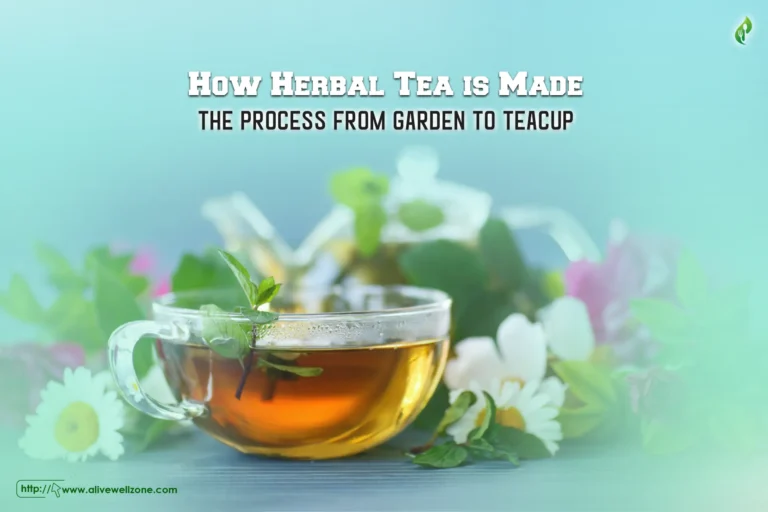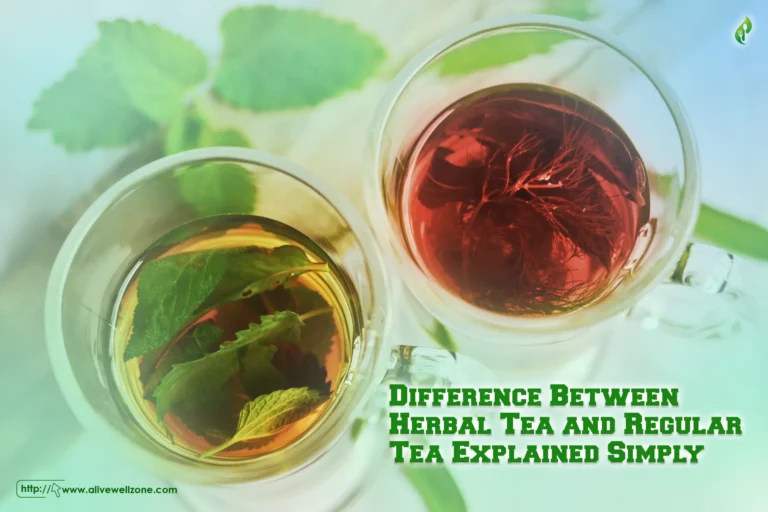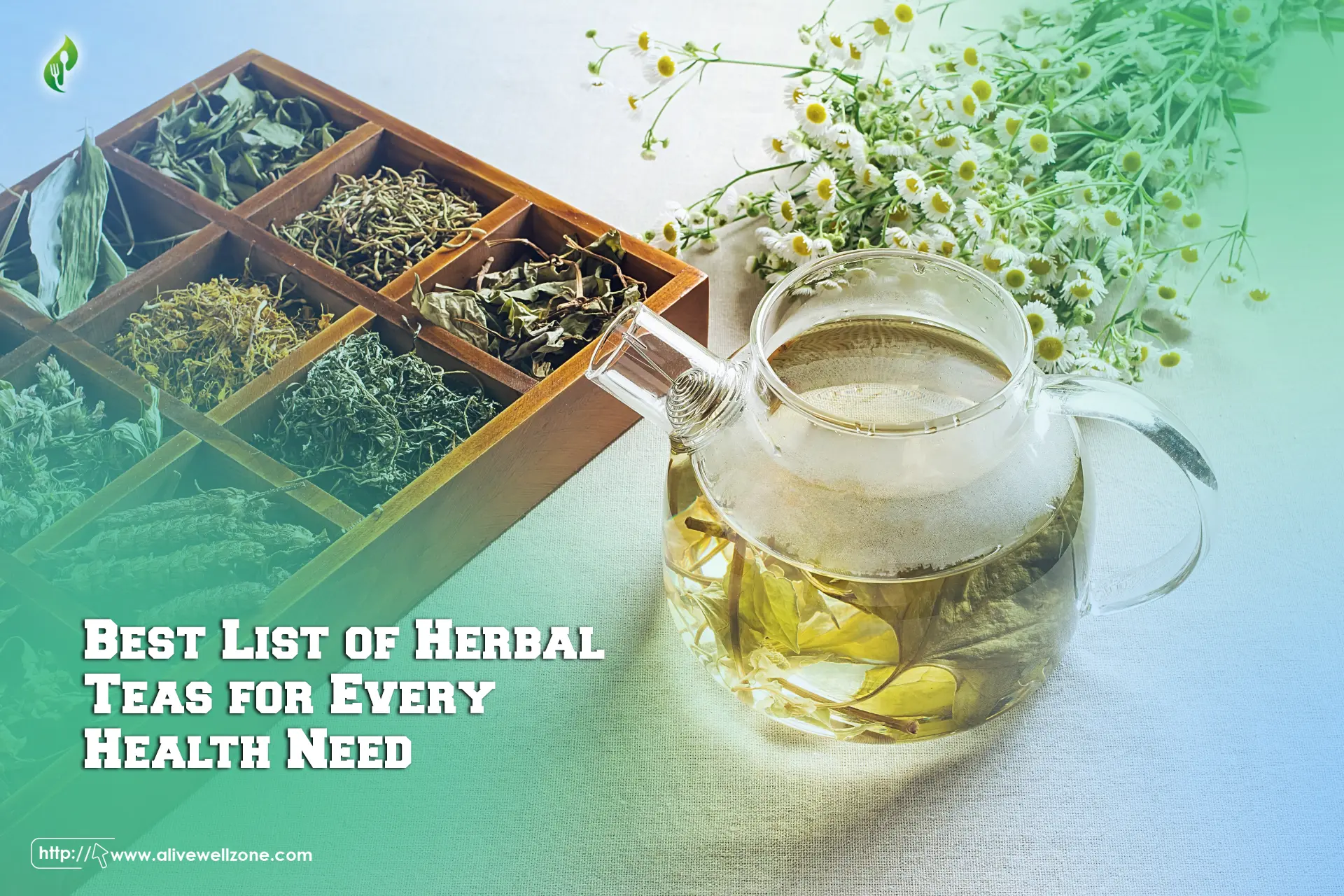
Last Updated on August 30, 2025 by Helena Akter
You’ve probably heard of herbal teas. Well, it’s not just one type, you know! There are lots of options out there, each with its own benefits. So, to help you, we made a list of herbal teas and their benefits.
Our list includes chamomile tea for sleep, barley tea for heart health, cardamom tea for digestion, ashwagandha tea for stress, and cinnamon tea for cholesterol. Plus, clove tea for bone health, dandelion tea for liver function, echinacea tea for immunity, ginger tea for nausea, and peppermint tea for digestion.
We’ll get deep into their health benefits, and how you can enjoy them for maximum effect. Plus, we’ll share which herbal teas are good during pregnancy and which ones to avoid. So, hold onto your hats, you’ll get deep valuable info!
Key Takeaways
- Variety of Benefits: Herbal teas offer a range of health benefits. They can improve sleep (chamomile, lavender), reduce anxiety (lemon balm, echinacea), support heart health (cinnamon, hibiscus), and fight infections (ginger, licorice).
- Mixing Options: You can mix most herbal teas with natural sweeteners like honey, maple syrup, or milk to improve flavor while maintaining health benefits.
- Pregnancy Guidelines: Chamomile, ginger, and raspberry leaf tea are generally considered safe during pregnancy. However, consult your doctor first.
- Herbal Teas to Avoid in Pregnancy: Pregnant women should avoid parsley and sage tea. They contain compounds that may trigger uterine contractions and increase the risk of miscarriage or early labor.
List of Herbal Teas and Their Benefits
Herbal teas are a natural way to enhance your well-being, offering a variety of flavors and health benefits. From soothing chamomile for relaxation to energizing ginger for digestion, these teas cater to diverse needs. Explore this list to discover the perfect herbal tea to support your health and elevate your daily routine.
1. Chamomile Tea

Flavor: Floral, light flavor
You can mix it with: Sugar, honey, maple syrup, and milk.
Benefits:
- Chamomile herbal tea may help improve sleep in elderly people and new mothers.
- It could ease discomfort and anxiety linked to premenstrual syndrome (PMS).
- Chamomile tea might fight cancer cells or stop them from growing.
- Those who drink chamomile tea 2 to 6 times a week may have a reduced risk of thyroid cancer.
2. Barley Tea
Flavor: Nutty
You can mix it with: Sugar, honey, or even a splash of milk
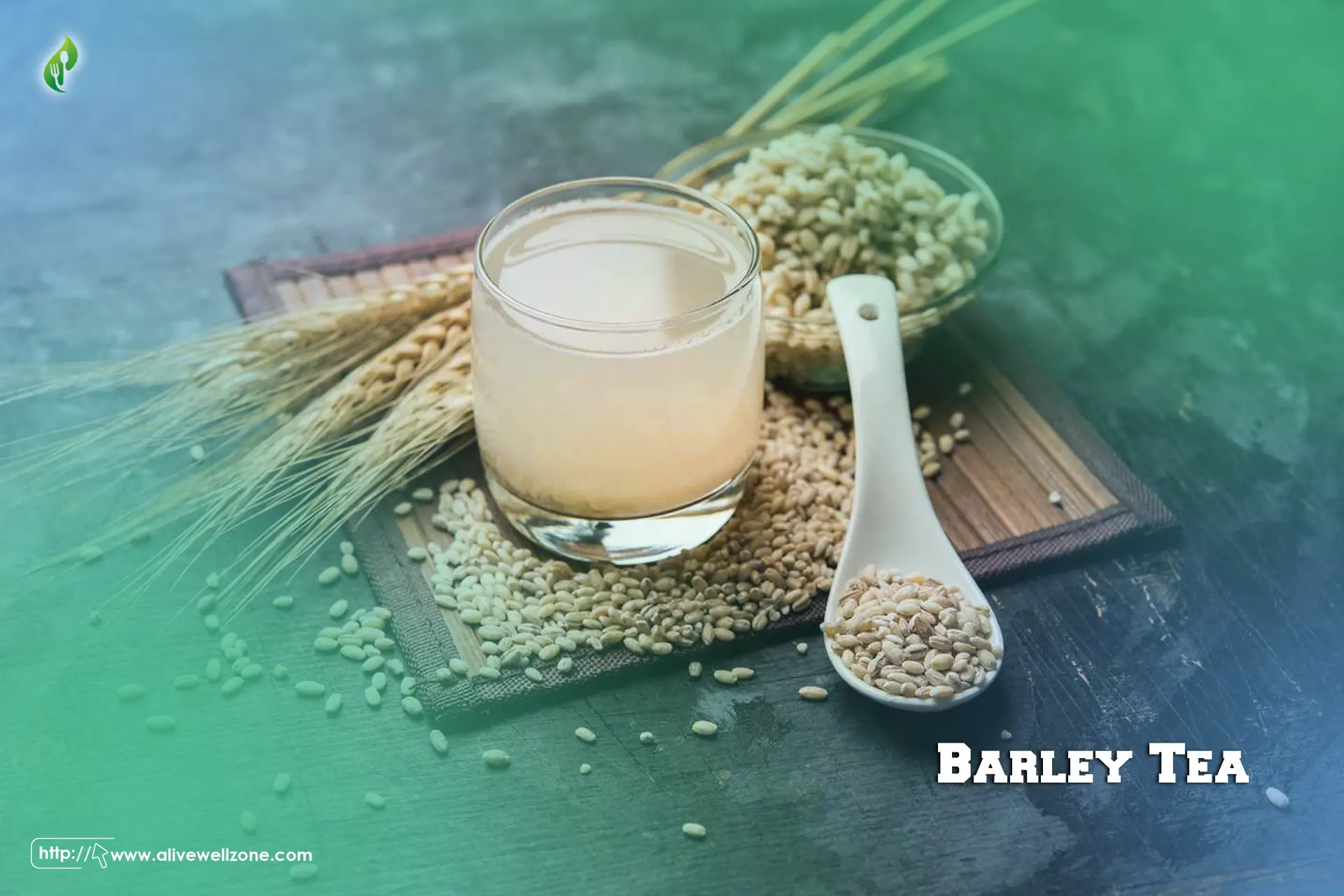
Benefits:
- The quercetin antioxidant in barley tea may benefit heart and brain health.
- It can also regulate the melatonin hormone to improve sleep.
- Barley tea is also rich in vitamin C, which helps fight infections.
3. Cardamom Tea
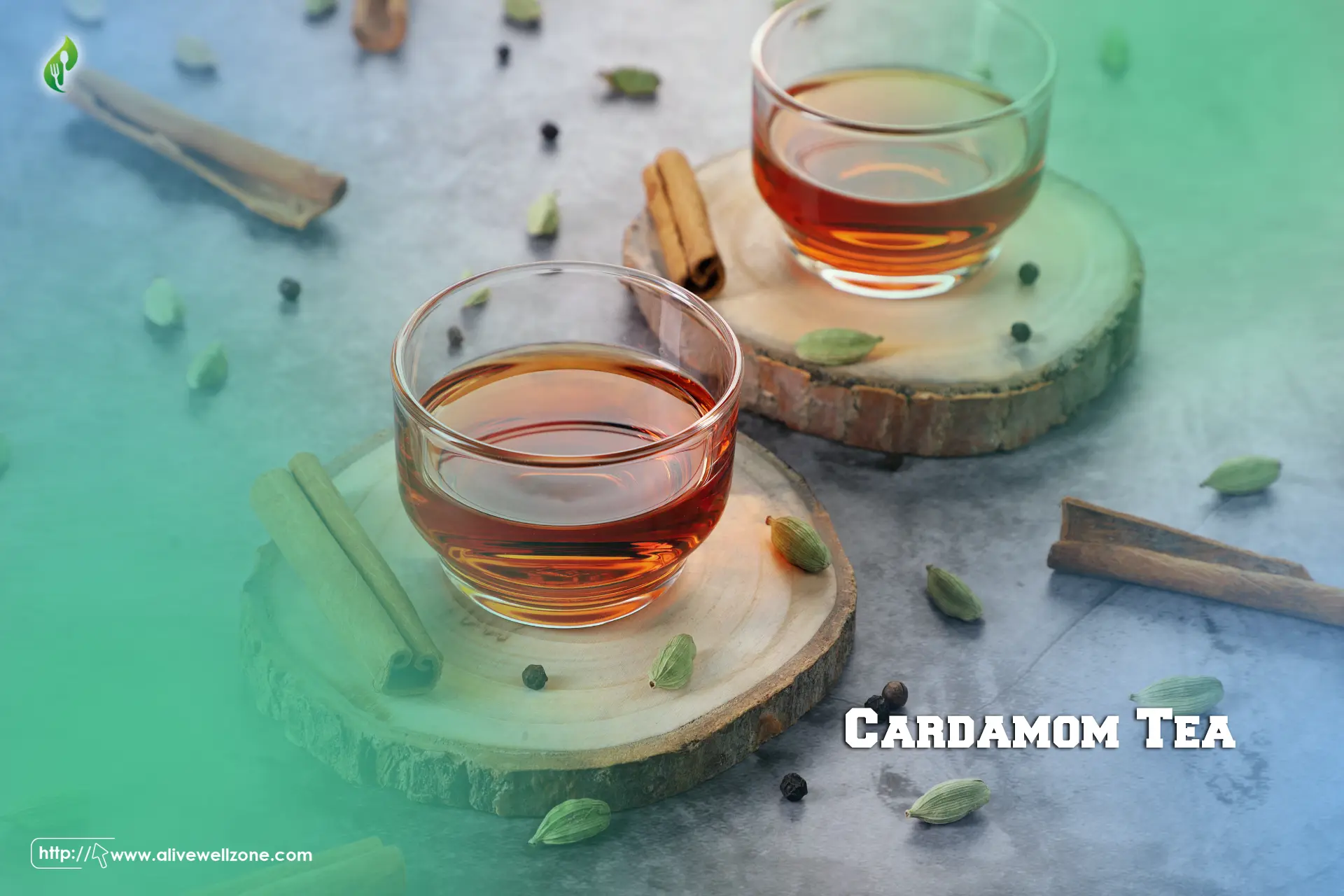
Flavor: Mint, smoky-like with a hint of nutty
You can mix it with: Milk, honey, sugar, or natural sweetener
Benefits:
- Cardamom can help your teeth stay healthy by stopping bacteria from growing.
- It might be good for people with irritable bowel syndrome.
- This tea helps your liver work better by eliminating toxins in your body.
4. Ashwagandha Tea
Flavor: Bitter and earthy
You can mix it with: Buttermilk, cardamom, honey, turmeric, and hazelnut.
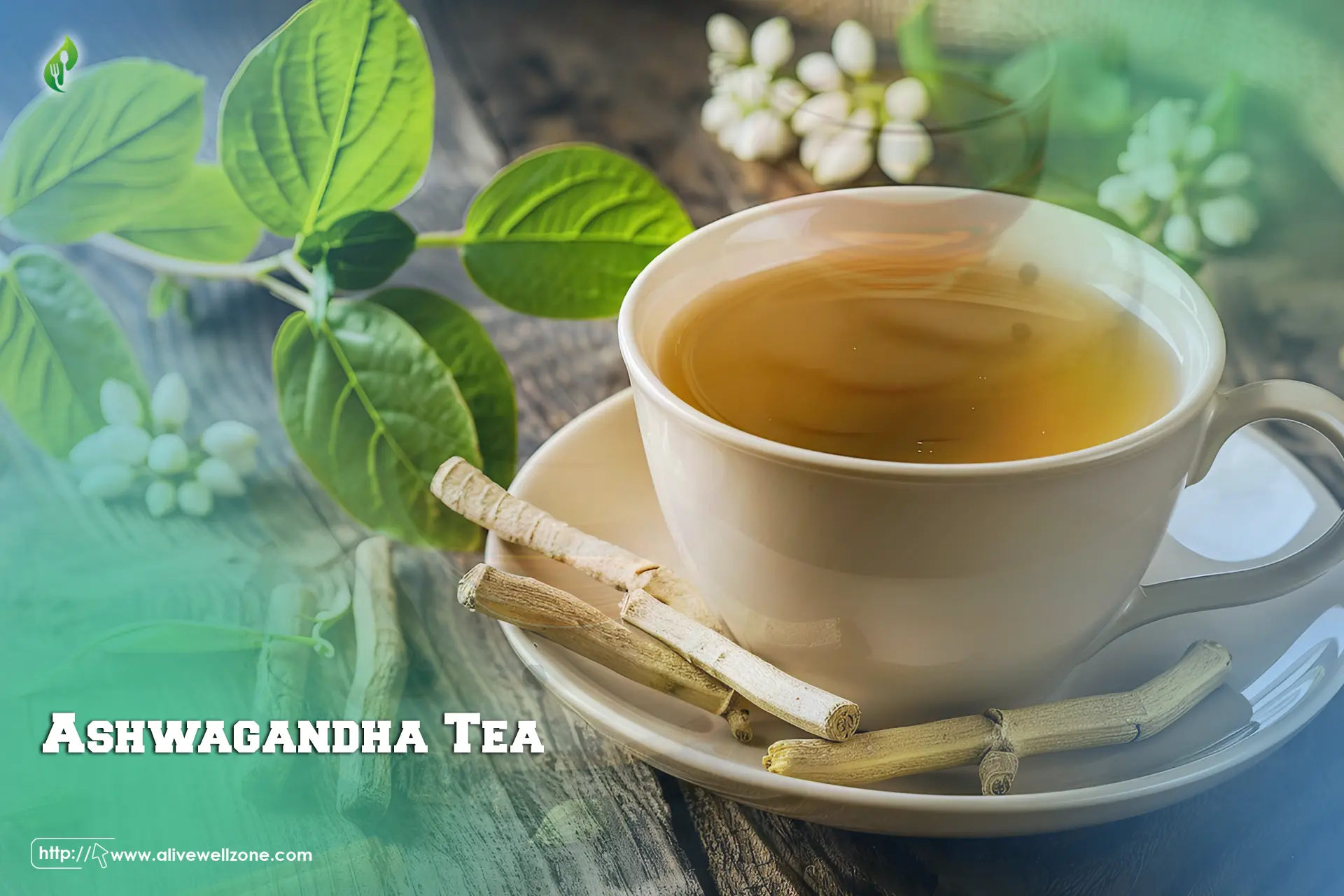
Benefits:
- Ashwagandha tea helps to decrease blood sugar levels.
- It can reduce cortisol levels which is a stress hormone.
- This tea can decrease anxiety when taken regularly.
- Also, it can increase indicators of healthy testosterone levels.
5. Cinnamon Tea
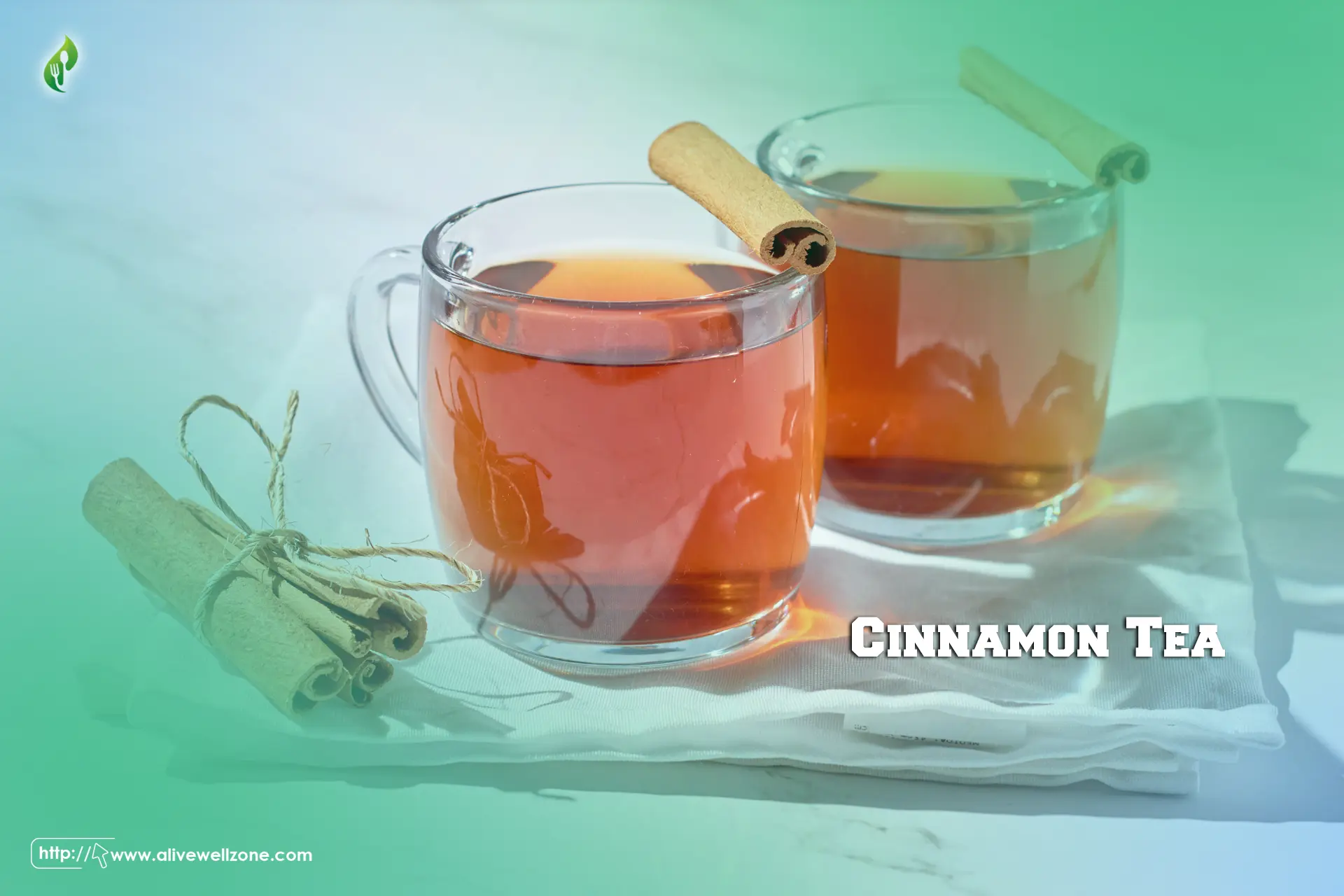
Flavor: sweet, woody, and earthy
You can mix it with: Milk and flower like roses, or hibiscus
Benefits:
- Cinnamon could raise HDL (good) cholesterol, which supports heart health.
- It may help in losing fat, particularly around the waist.
- Cinnamon extracts might help destroy some cancer cells, including skin cancer.
- Taking cinnamon may reduce your joint swelling.
6. Clove Tea
Flavor: strong spicy with a bit of sweetness
You can mix it with: Sugar, honey, or milk.
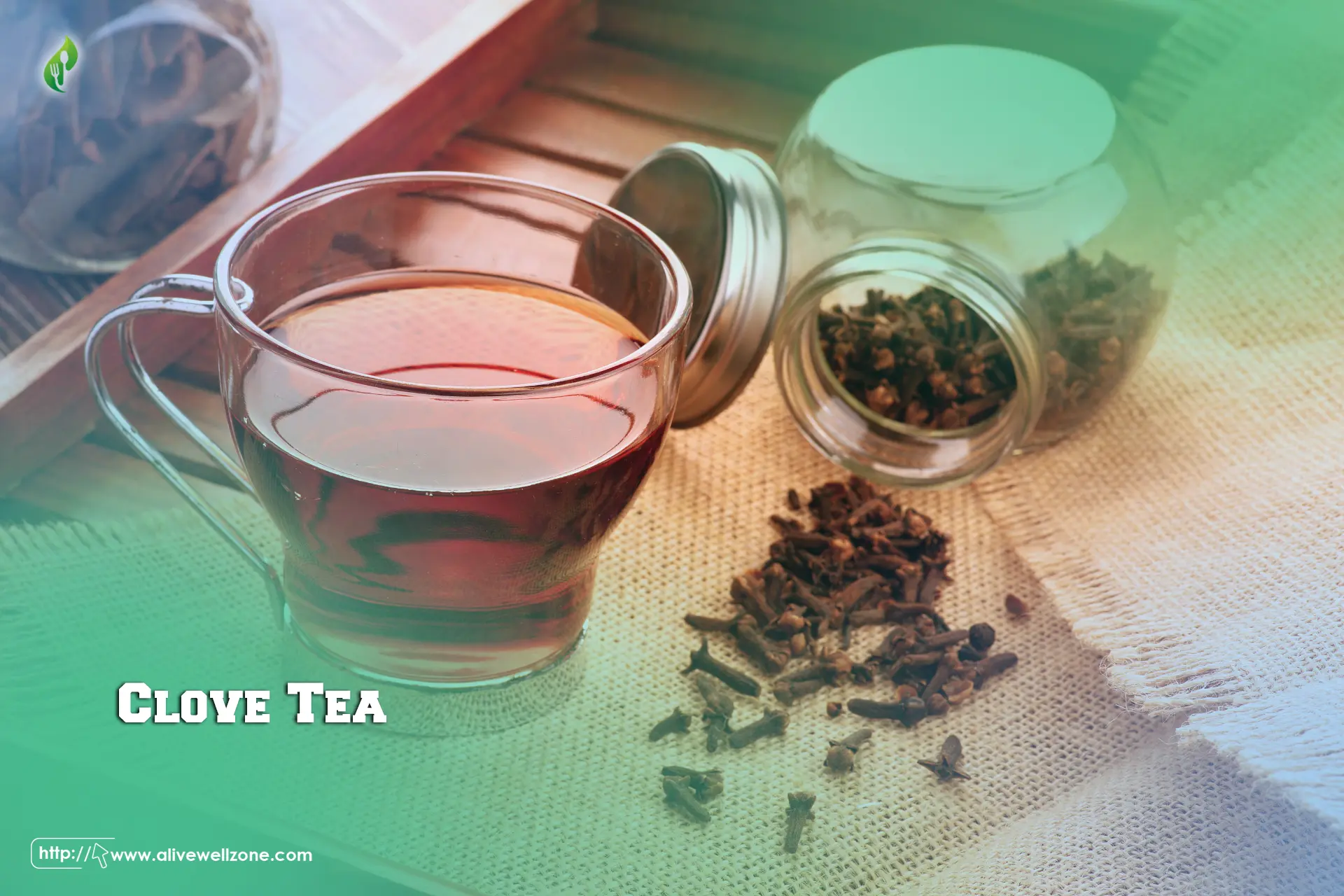
Benefits:
- Eugenol in cloves may improve bone health by strengthening bones and increasing bone density.
- The cloves in your tea provide anti-inflammatory benefits that help lower inflammation.
- Cloves act as an expectorant that may help clear congestion and ease respiratory problems like colds, coughs, and asthma.
7. Dandelion Tea
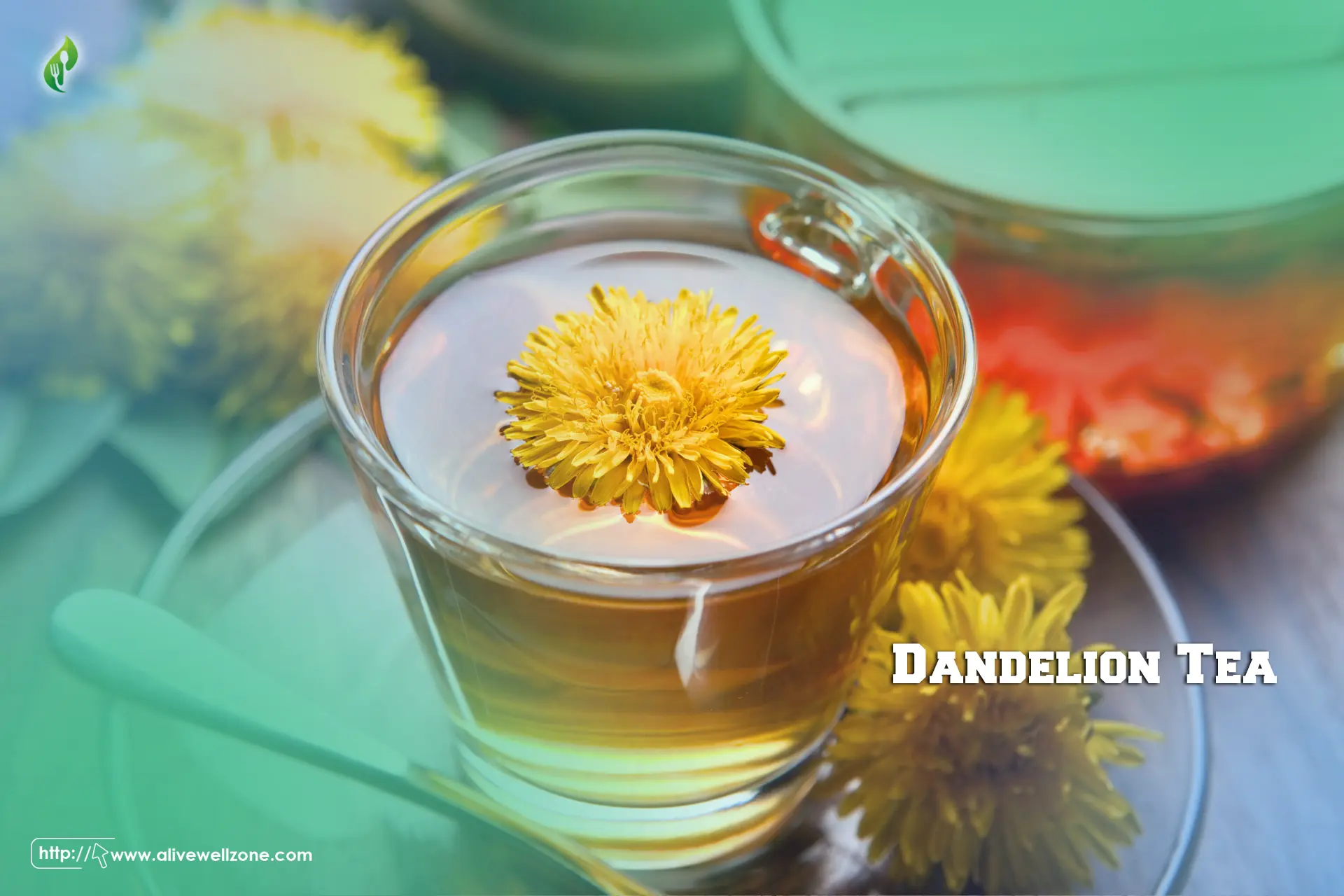
Flavor: strong earthy
You can mix it with: sweet herbs, or honey and full fat coconut milk (if it’s hot)
Benefits:
- The polysaccharides in dandelions might support better liver function.
- When used together with the dandelion roots uva ursi, and leaves could help lower the chance of urinary tract infections.
- Dandelion tea contains polyphenols, an antioxidant with anti-inflammatory effects, which may promote heart health.
8. Echinacea Tea
Flavor: strong floral flavor with a slight meadowsweet
You can mix it with: honey, lemon juice, or other sweeteners
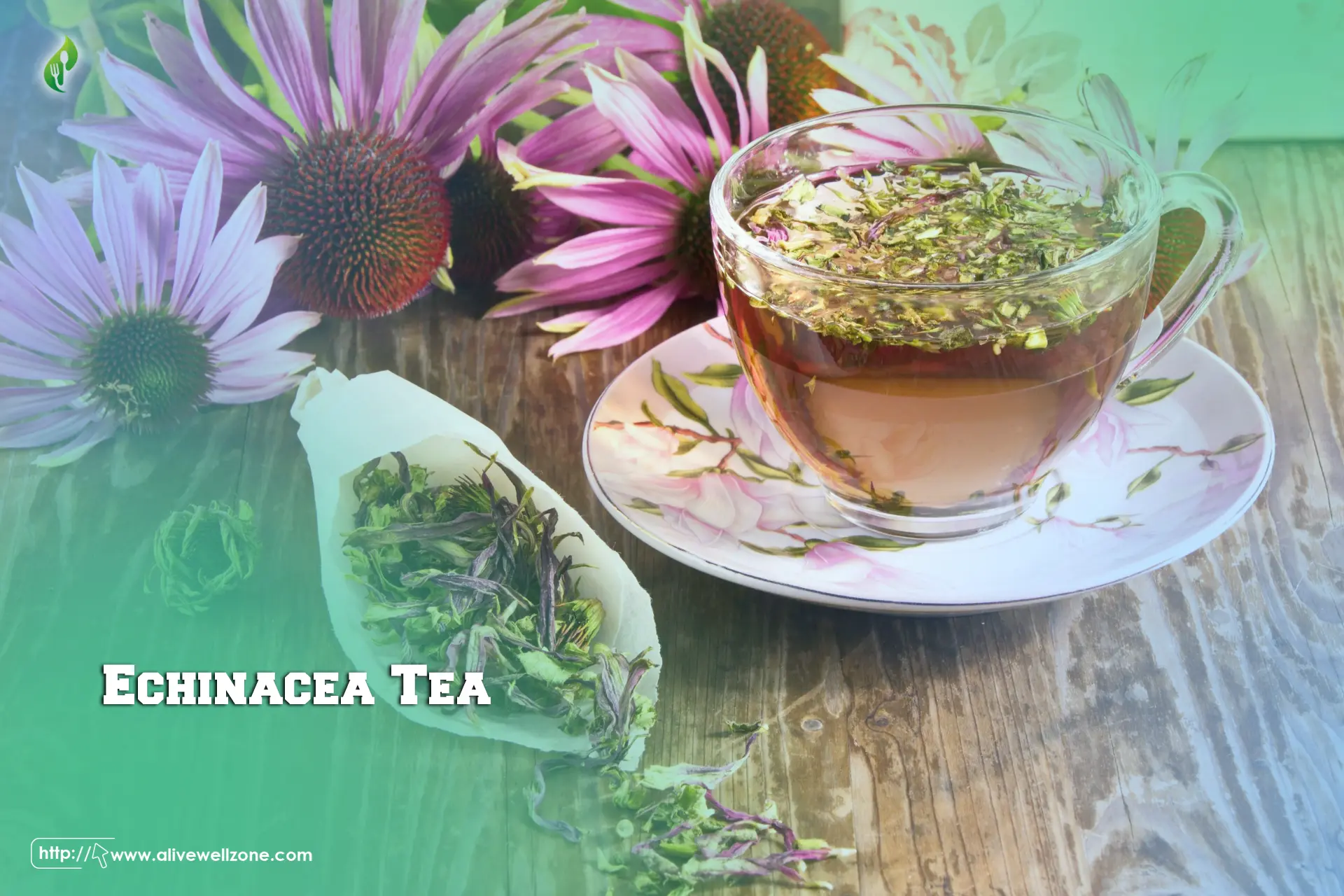
Benefits:
- Echinacea tea is as effective as the commonly used treatment, oseltamivir, in fighting the flu virus.
- Echinacea reduces excitatory signals in the hippocampus, which are linked to stress and anxiety.
- Echinacea has compounds with hypoglycemic effects that can block carb breakdowns, helping to lower blood sugar levels.
9. Ginger Tea
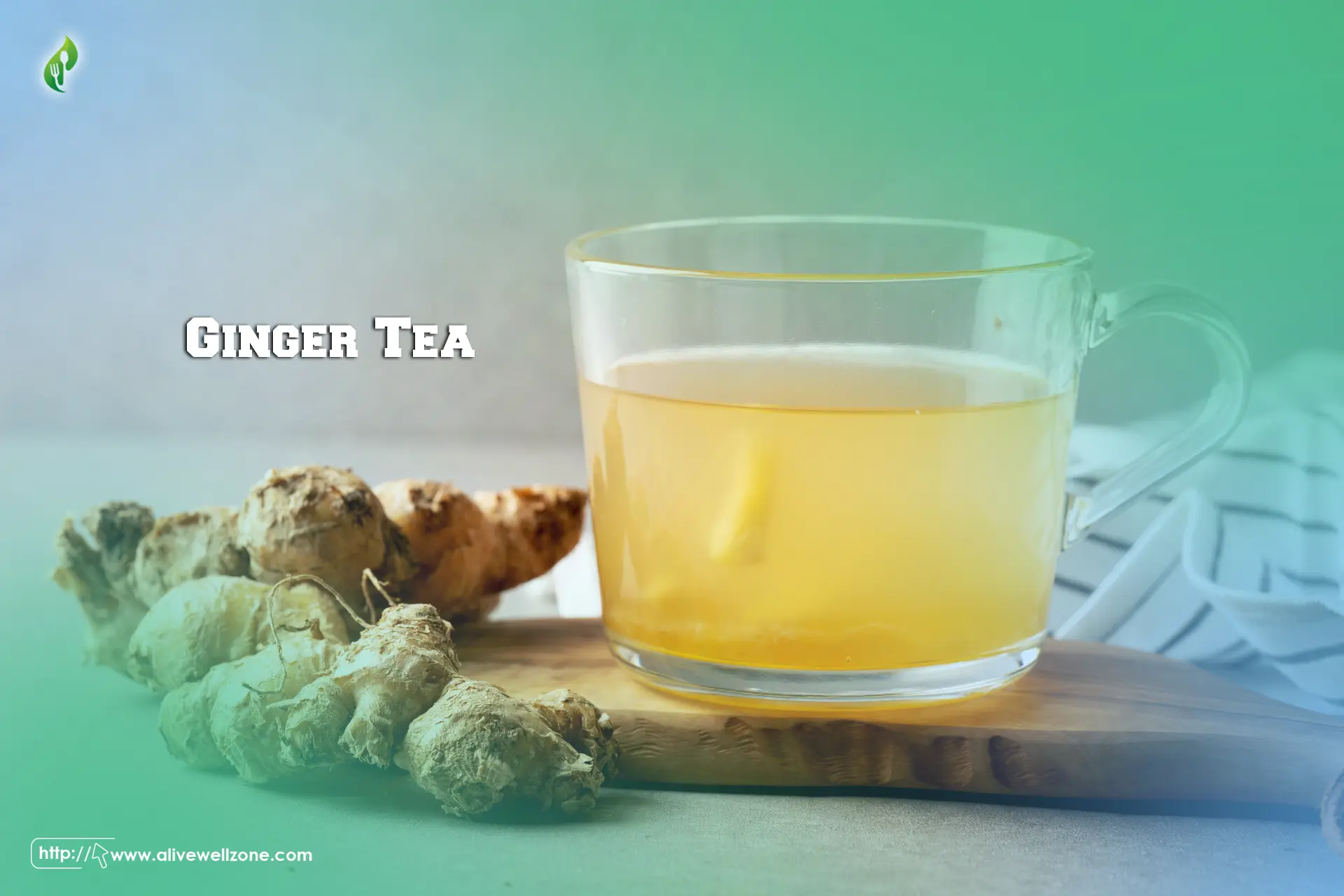
Flavor: Earthy with a little spicy kick
You can mix it with: honey, lemon juice, or other sweeteners
Benefits:
- Ginger may help relieve vomiting and nausea during pregnancy.
- Consuming over 3 grams of ginger daily for 2 months reduced blood pressure in middle-aged adults.
- Ginger supplements can lower inflammation levels in people with rheumatoid arthritis (RA).
- Combining ginger with non-steroidal anti-inflammatory drugs (NSAIDs) might help in treating migraines.
10. Hibiscus Tea
Flavor: Tart, sweet
You can mix it with: Agave, honey, or maple syrup
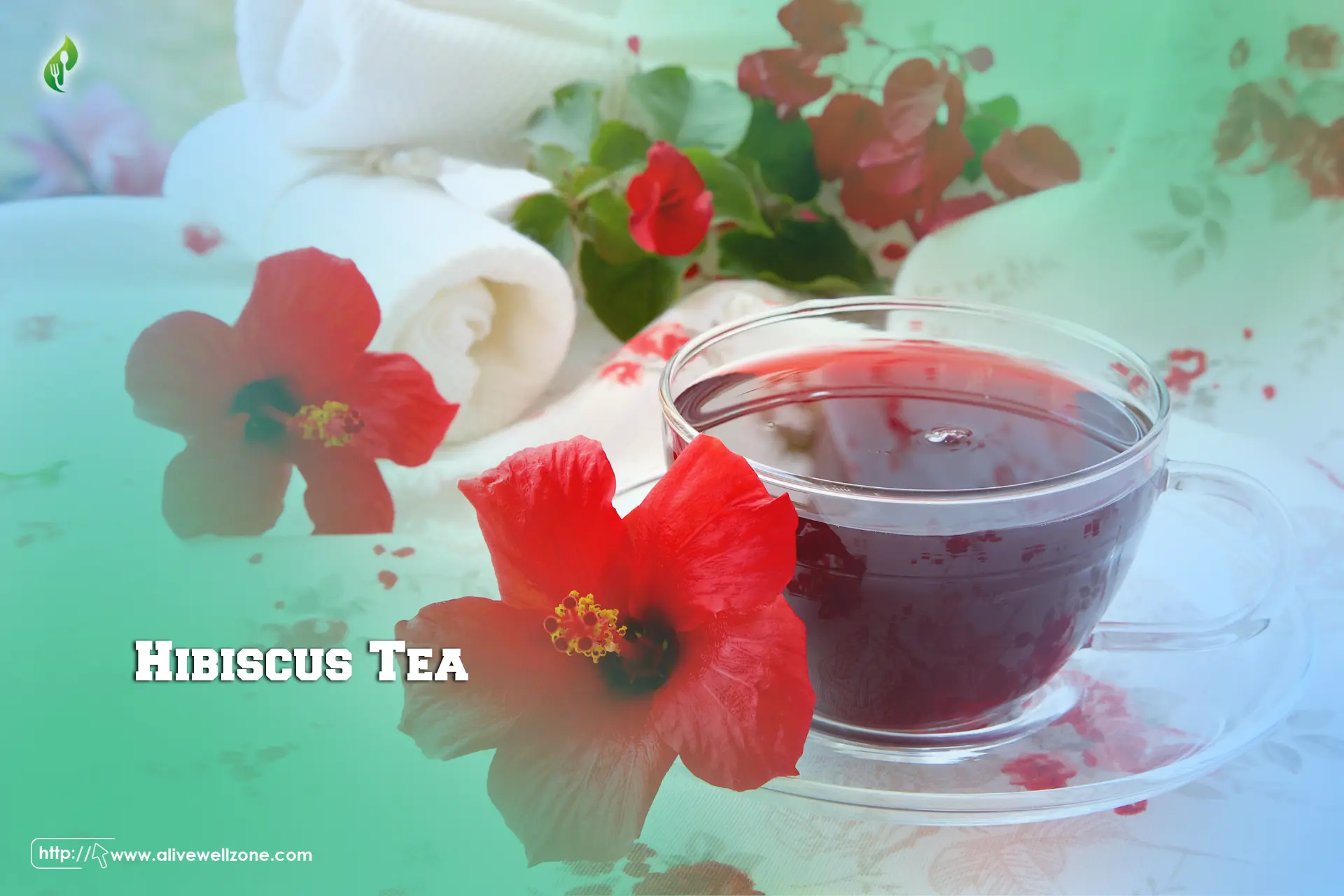
Benefits:
- Hibiscus tea can significantly lower blood pressure.
- It may also help reduce low-density lipoprotein (LDL), commonly known as “bad” cholesterol.
- Hibiscus tea is rich in antioxidants like vitamin C, carotenoids, and anthocyanins, which help protect cells from disease.
11. Lavender Tea
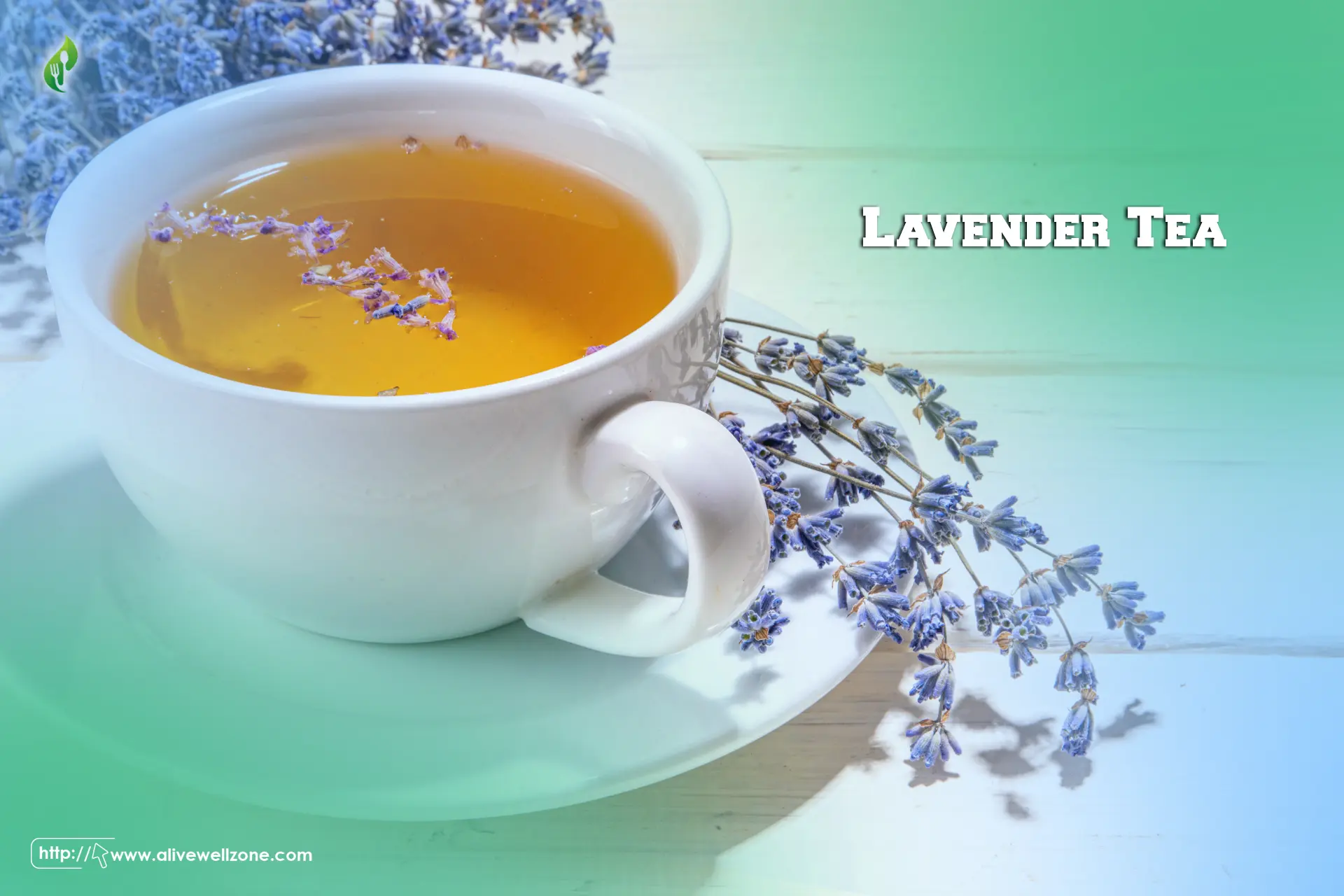
Flavor: Sweet
You can mix it with: A small amount of sugar
Benefits:
- People who drank 250 mL or 1 cup of lavender tea every day for two weeks felt less tired and sad. They also smelled the tea while they drank it.
- Drinking lavender tea and smelling it for half an hour each day helped women with menstrual cramps.
- Lavender tea has antioxidants that can help remove free radicals and toxins from the body.
12. Lemon Balm Tea
Flavor: Soft fresh lemon with menthol earthiness
You can mix it with: Honey or sugar
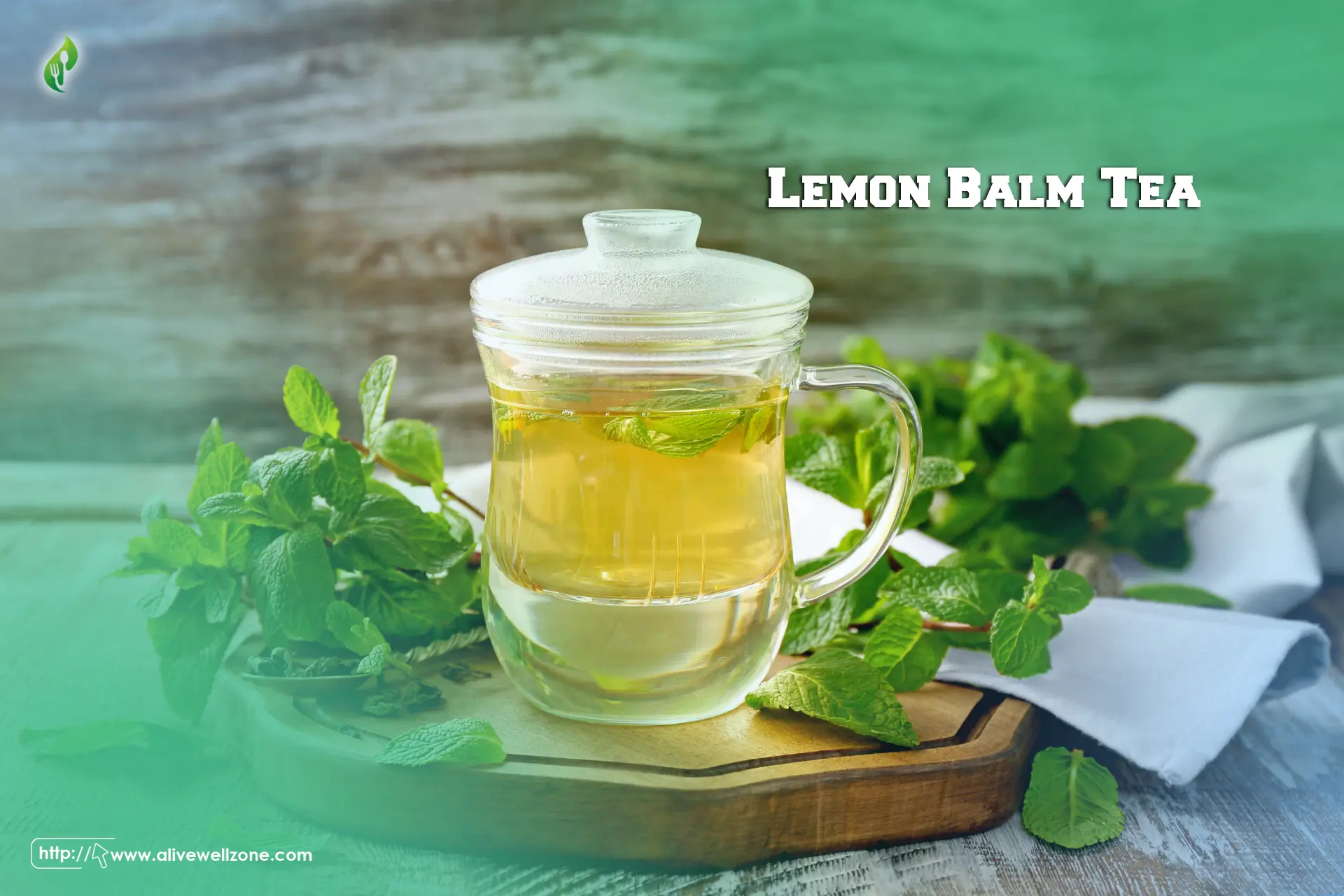
Benefits:
- Lemon balm may help reduce anxiety and depression symptoms in some individuals.
- Taking lemon balm extract could also relieve mild to severe menstrual cramps.
- An 8-week course of lemon balm has been shown to lower stress and improve sleep problems in people with CSA.
- Lemon balm extract has potent antiviral effects and can effectively fight the herpes simplex virus type 1, which leads to cold sores.
13. Lemongrass Tea
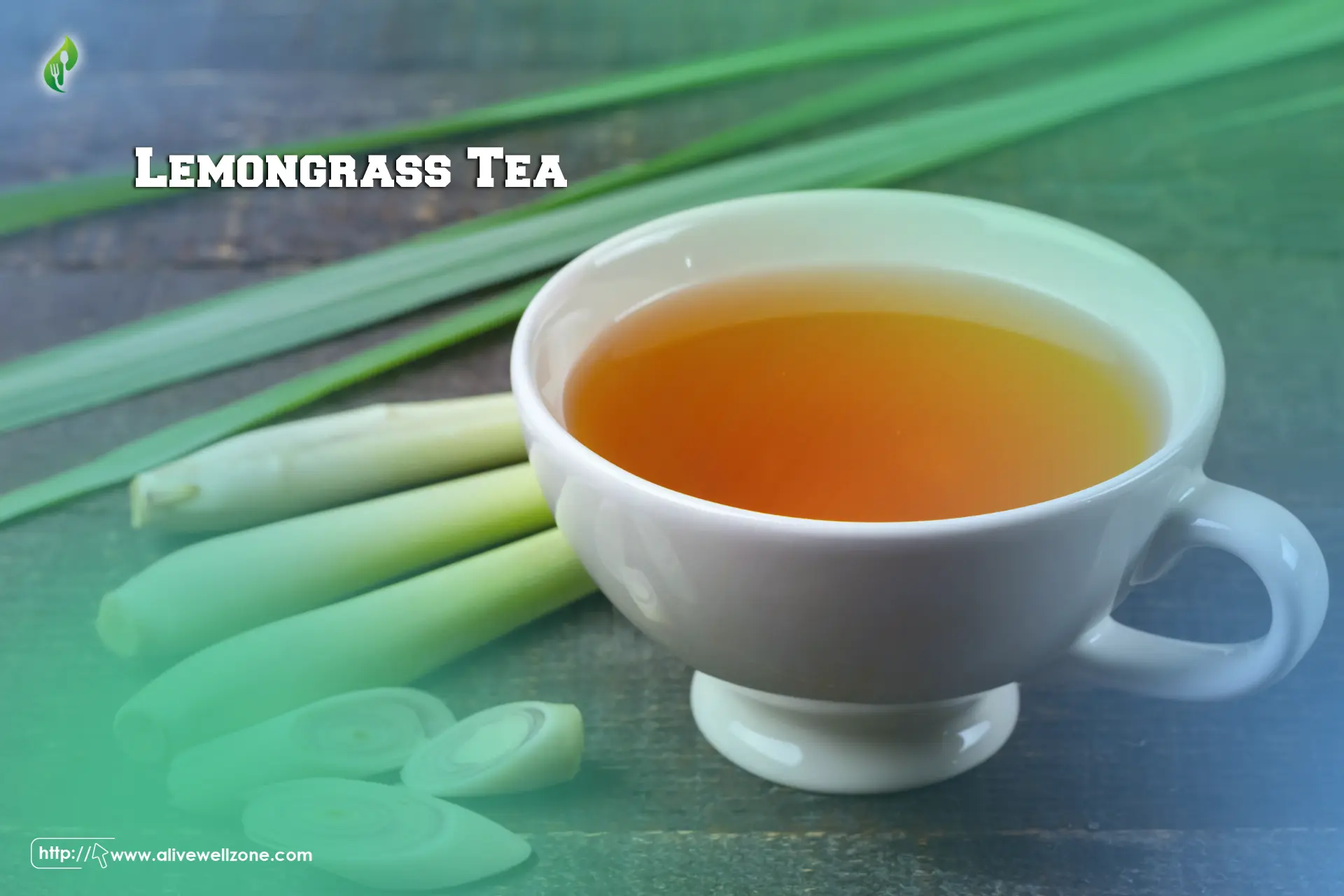
Flavor: Citrusy, fresh taste
You can mix it with: Brown sugar, maple syrup, or honey.
Benefits:
- Consuming lemongrass extract seems to reduce cholesterol levels in animals, although the effect depends on the dose.
- Drinking lemongrass tea daily for 30 days may increase hemoglobin levels, red blood cell count, and packed cell volume.
- Lemongrass tea might also help reduce the sensation of pain.
- People who drank lemongrass tea showed a moderate decrease in systolic blood pressure and a slight rise in diastolic blood pressure. Plus, they had a noticeable drop in heart rate.
14. Licorice Root Tea
Flavor: Sweet.
You can mix it with: Honey or sweetener.
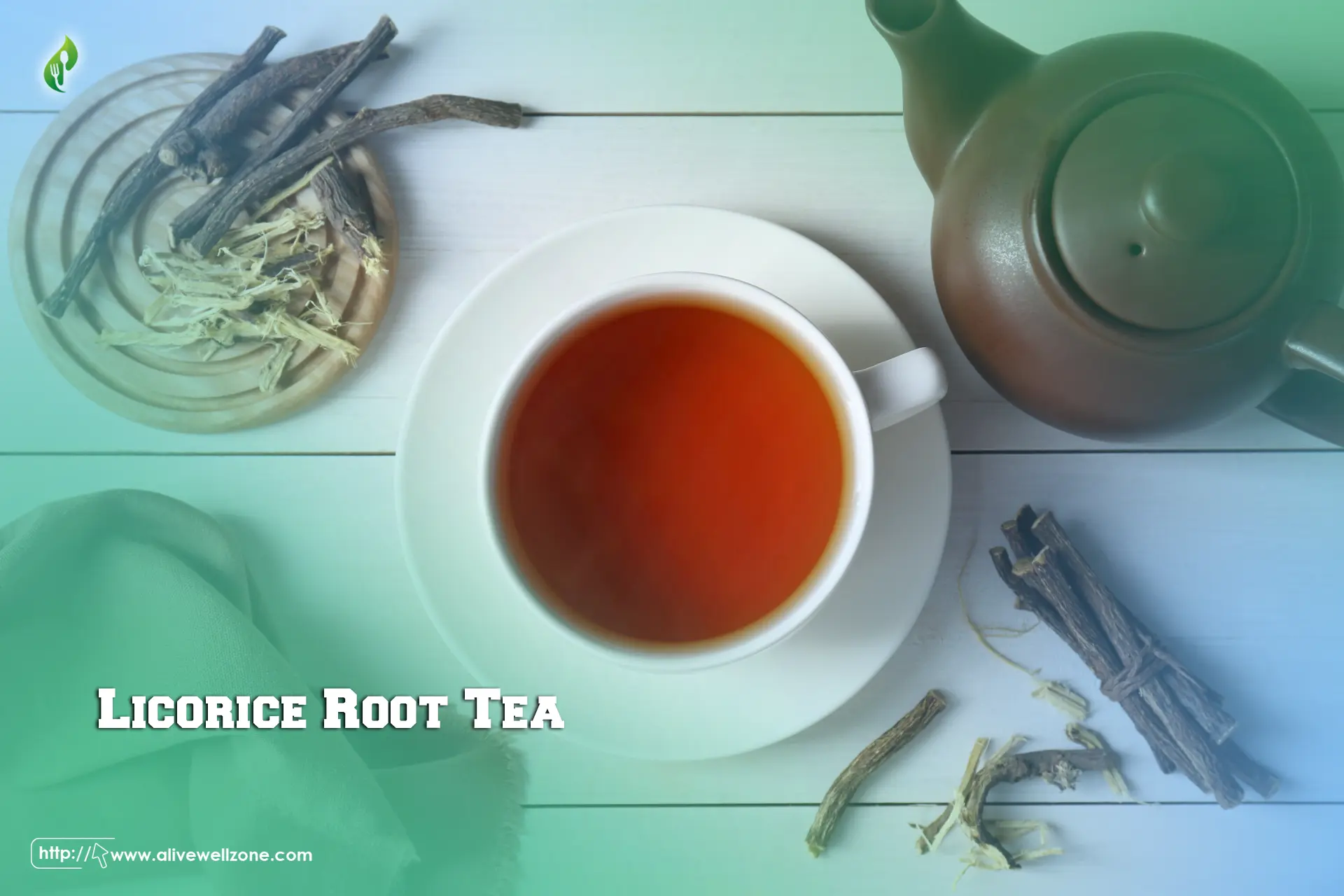
Benefits:
- Licorice root has natural antimicrobial and antiviral qualities. So, drinking licorice tea may help you relieve cold symptoms and reduce the chance of getting sick.
- It’s also known to support digestive health by easing discomfort from digestive issues.
- The coumarins and flavonoids in licorice root fight bacteria that cause mouth sores and bad breath.
- Research suggests that licorice root’s antimicrobial properties can help clean the skin and prevent bacteria that lead to inflammation.
15. Peppermint Tea
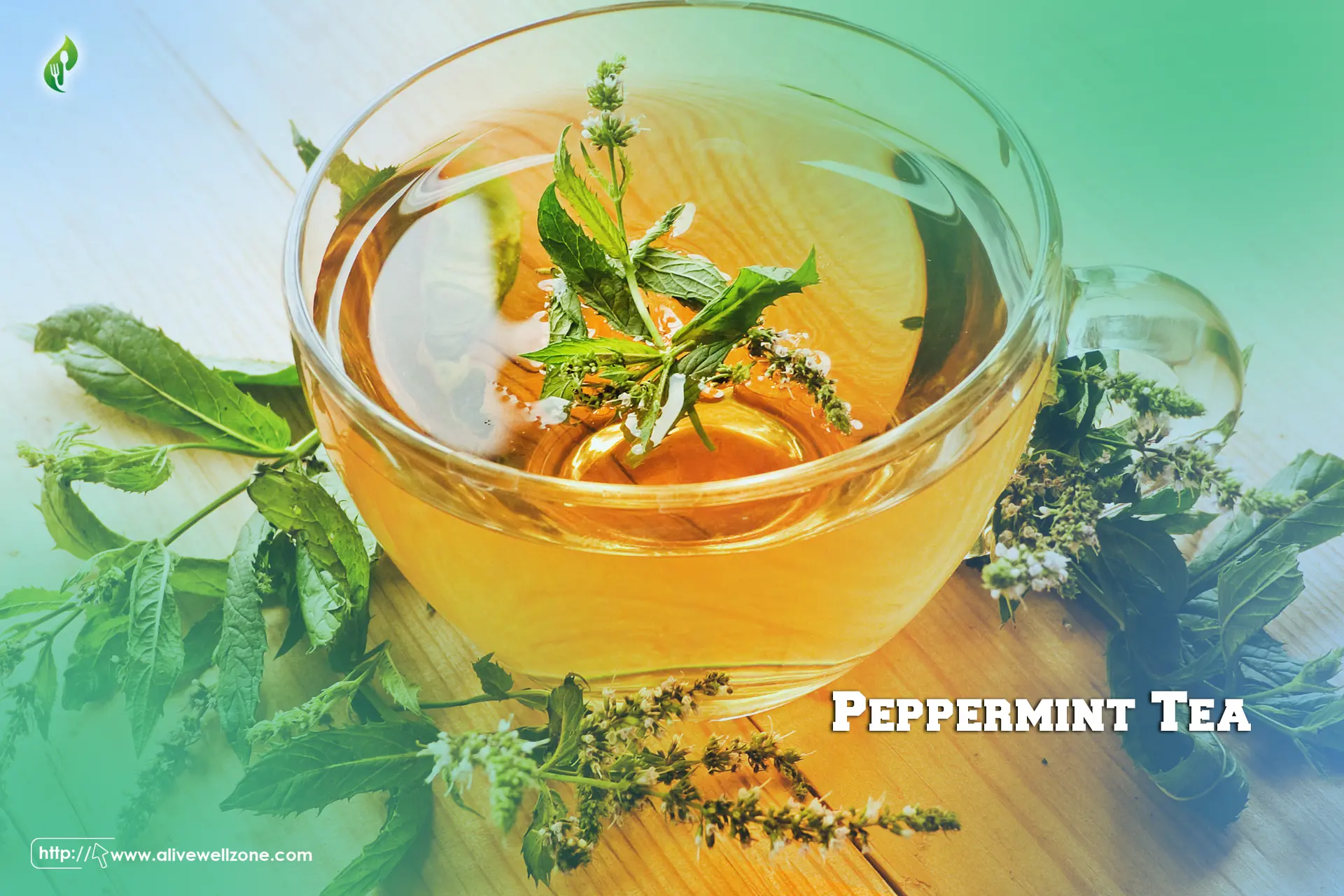
Flavor: Sweet and minty
You can mix it with: A few sprigs of fresh mint or lemon for a refreshing taste
Benefits:
- Gargling a mixture of peppermint, tea tree oils, and lemon was found to help reduce bad breath in people who had spine surgery.
- Peppermint is known for its powerful antimicrobial, antioxidant, and antiviral properties. So, if you drink peppermint tea or use it in other ways, it can help fight the common cold and other viral infections.
- Menthol, the main ingredient in peppermint, can help relieve headaches.
- Peppermint tea may help ease cold symptoms because of its strong antiviral and antibiotic properties. It can help thin mucus and soothe irritation in your throat and sinuses.
16. Passionflower Tea
Flavor: Deep rich earthy
You can mix it with: Mostly honey
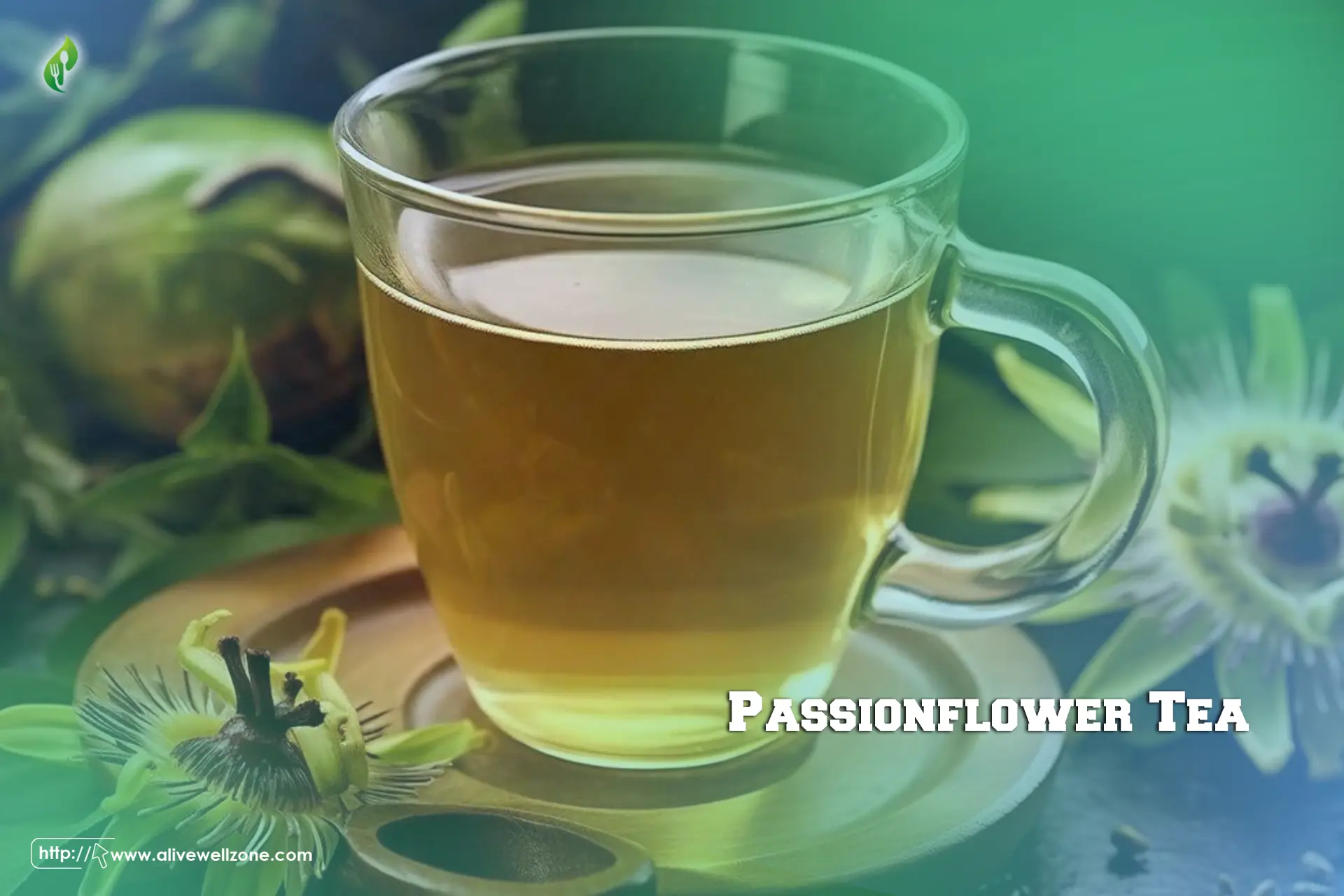
Benefits:
- A study from 2023 showed that dry passionflower extract can help people who are trying to stop using benzodiazepines.
- Passionflower tea can help you sleep better and longer if you drink it before bed.
- The extract itself was found to work as well as oxazepam, a medication commonly prescribed for depression and anxiety.
17. Spearmint Tea
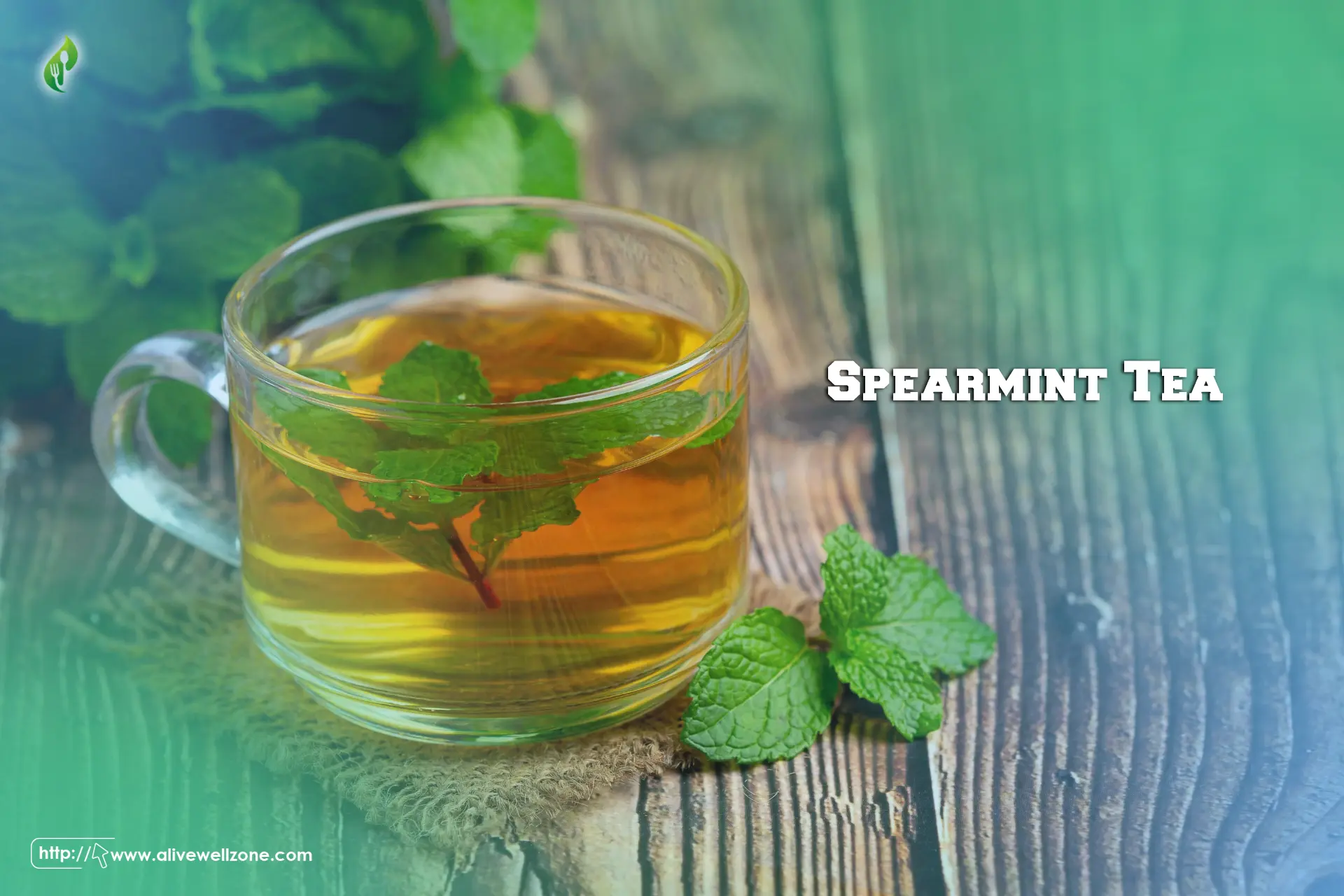
Flavor: Light mint and a bit sweet
You can mix it with: Honey or sugar
Benefits:
- Women with PCOS who drank spearmint tea twice a day for a month had less hair growth (hirsutism).
- While studies on animals show that spearmint tea can help lower blood sugar in rats, the same effect hasn’t been seen in humans yet.
- Spearmint tea can also help reduce stress and protect your body from damage caused by oxidative stress.
18. Raspberry Leaf Tea
Flavor: Fruity, tangy, and sometimes a little bit bitter
You can mix it with: Maple syrup or honey
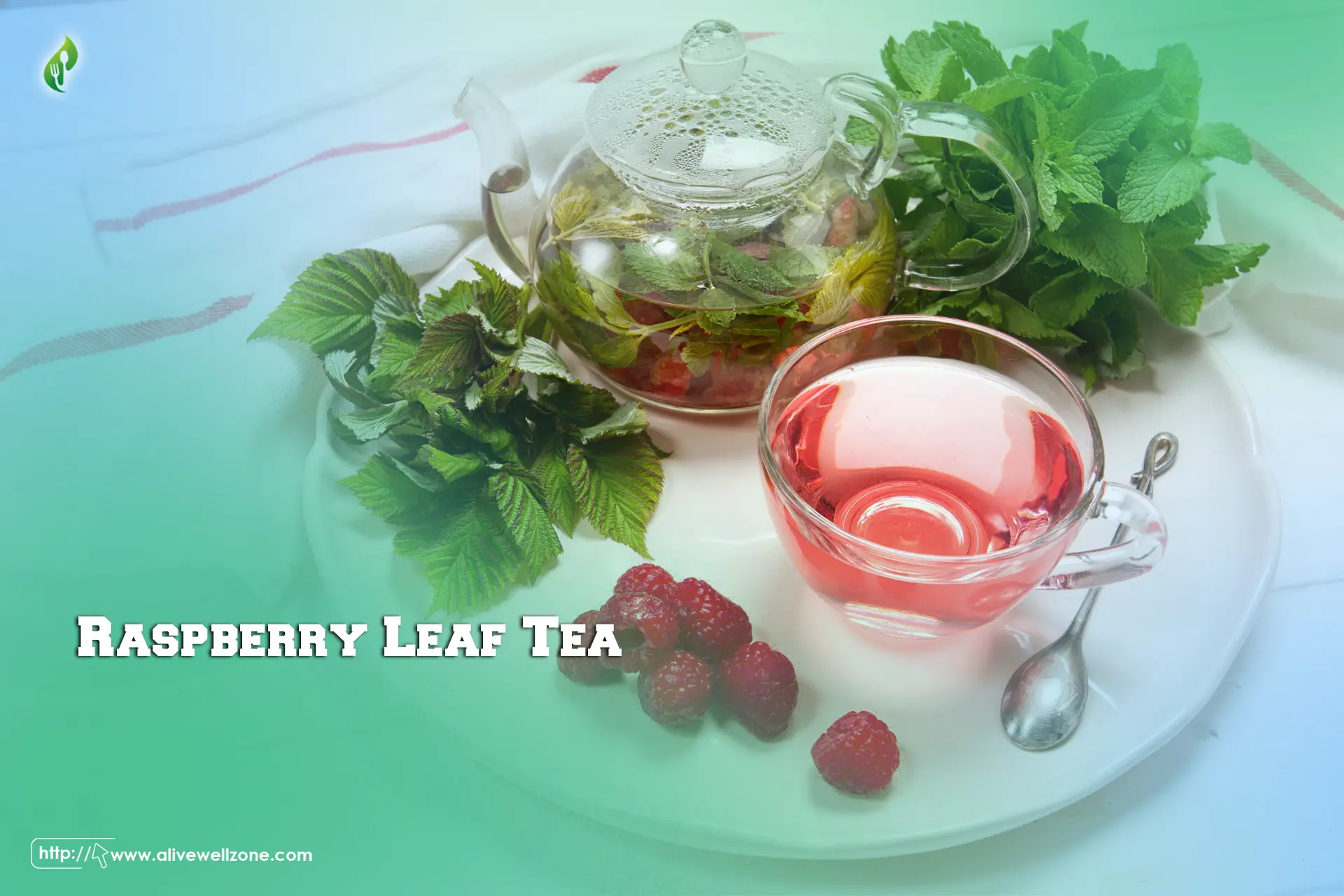
Benefits:
- Some scientists believe that raspberry leaf tea may help fight cancer because the leaves contain ellagic acids. Studies have shown that ellagic acids could slow the growth of cancer cells.
- The tea contains fragrine, which helps tone and tighten pelvic muscles, potentially reducing mild menstrual cramps.
- Some studies have shown that raspberry leaf tea may help shorten labor.
19. Rooibos Tea
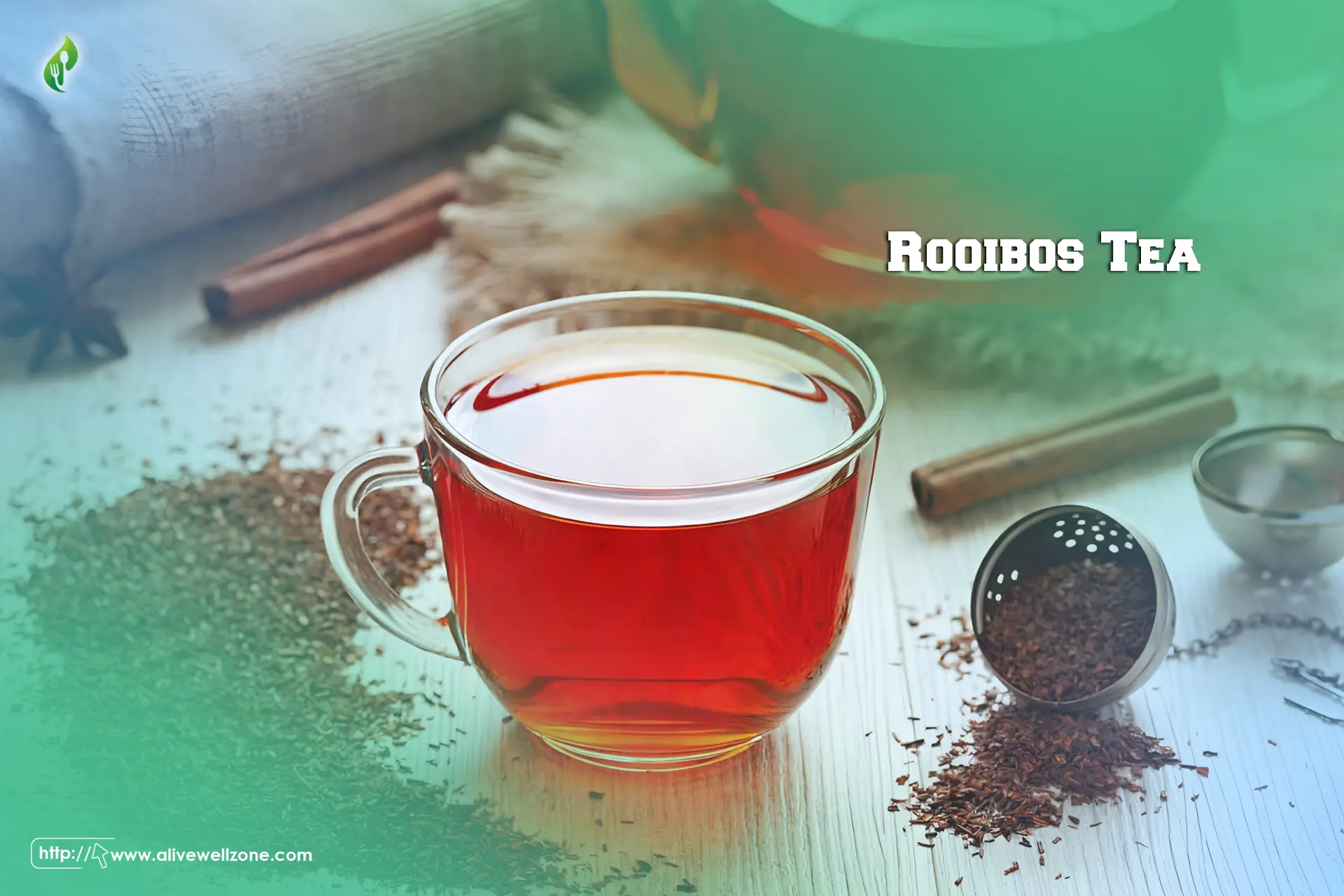
Flavor: Earthy with a bit of natural sweetness
You can mix it with: Plant-based milk, sugar, or honey
Benefits:
- Rooibos tea was found to reduce ACE activity within 30 to 60 minutes after drinking.
- Aspalathin, a substance found in rooibos tea, helps reduce the inflammation of blood vessels caused by high blood sugar levels.
- Rooibos tea may also help with weight management by increasing leptin levels.
20. Rose Tea
Flavor: Light floral
You can mix it with: Honey or sugar syrup
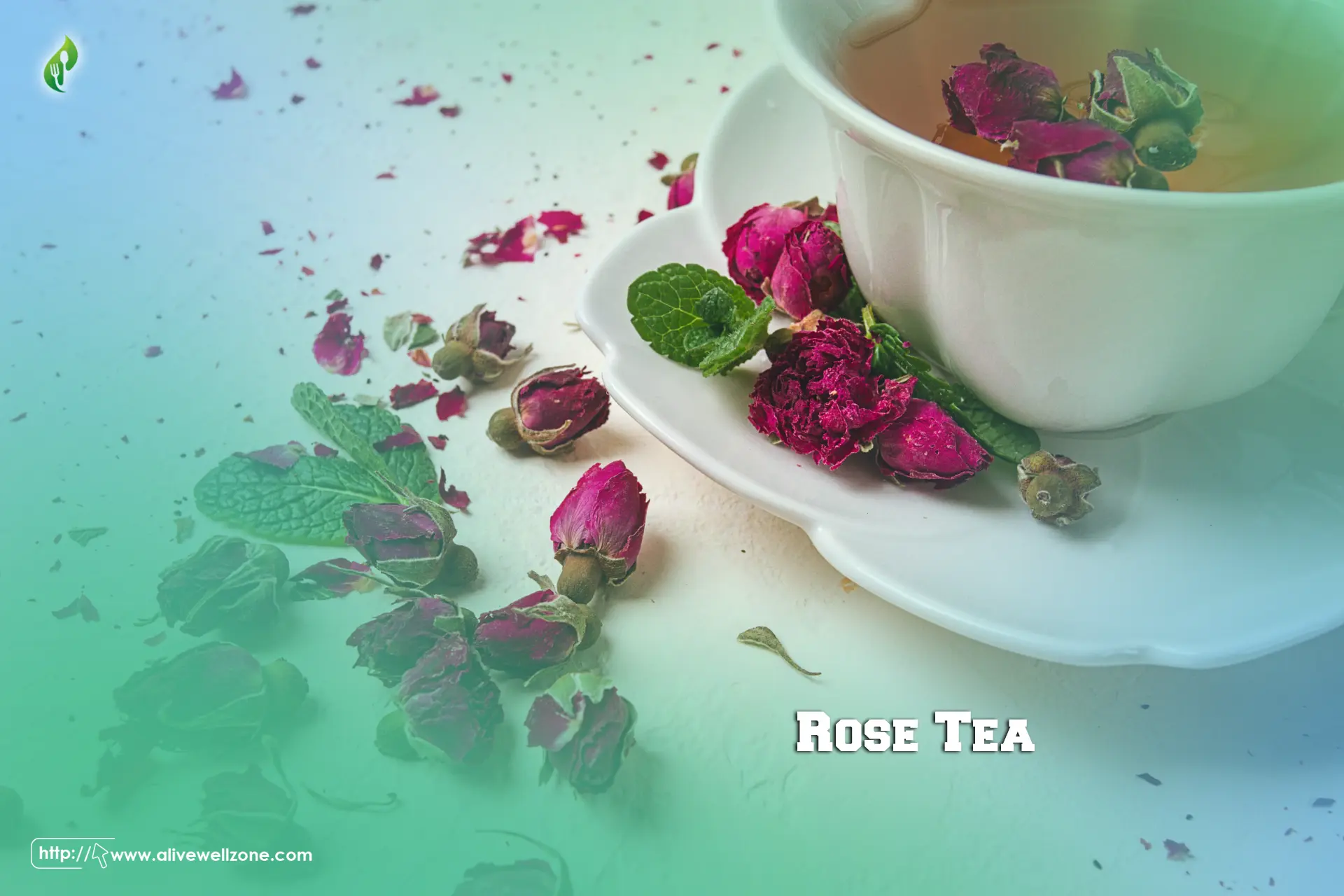
Benefits:
- Drinking rose tea may help women feel less painful, anxious, and stressed during their periods.
- Rose tea is rich in polyphenols, which are good for heart health and can help prevent diabetes.
- In a study, rats that couldn’t sleep well were given rose extract. This extract seemed to help them sleep better by blocking certain receptors in their bodies.
21. Rosemary Tea
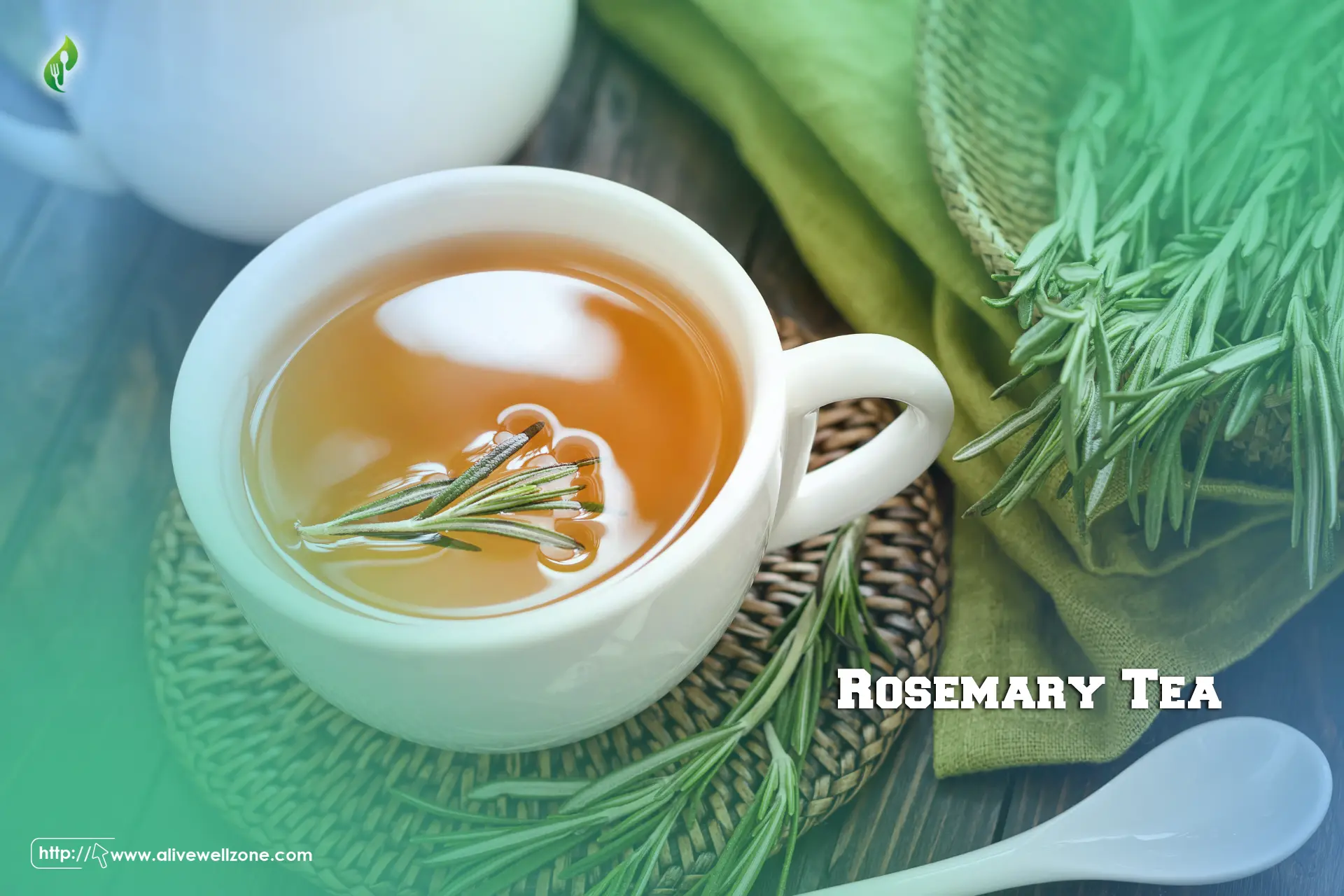
Flavor: Piney with hints of mint and lemon
You can mix it with: Lemon, honey, or ginger
Benefits:
- Drinking rosemary tea can help your digestive system work better. It makes your body produce more flow of bile and digestive enzymes, which helps you digest food.
- Rosemary tea is also full of antioxidants such as carnosic acid, and caffeic acid that protect your cells from damage and reduce inflammation.
- It can even help fight off germs and keep your immune system strong, thanks to its antimicrobial propertie
22. Turmeric Tea
Flavor: Sweet yet bitter
You can mix it with: Lemon juice, maple syrup, or honey.
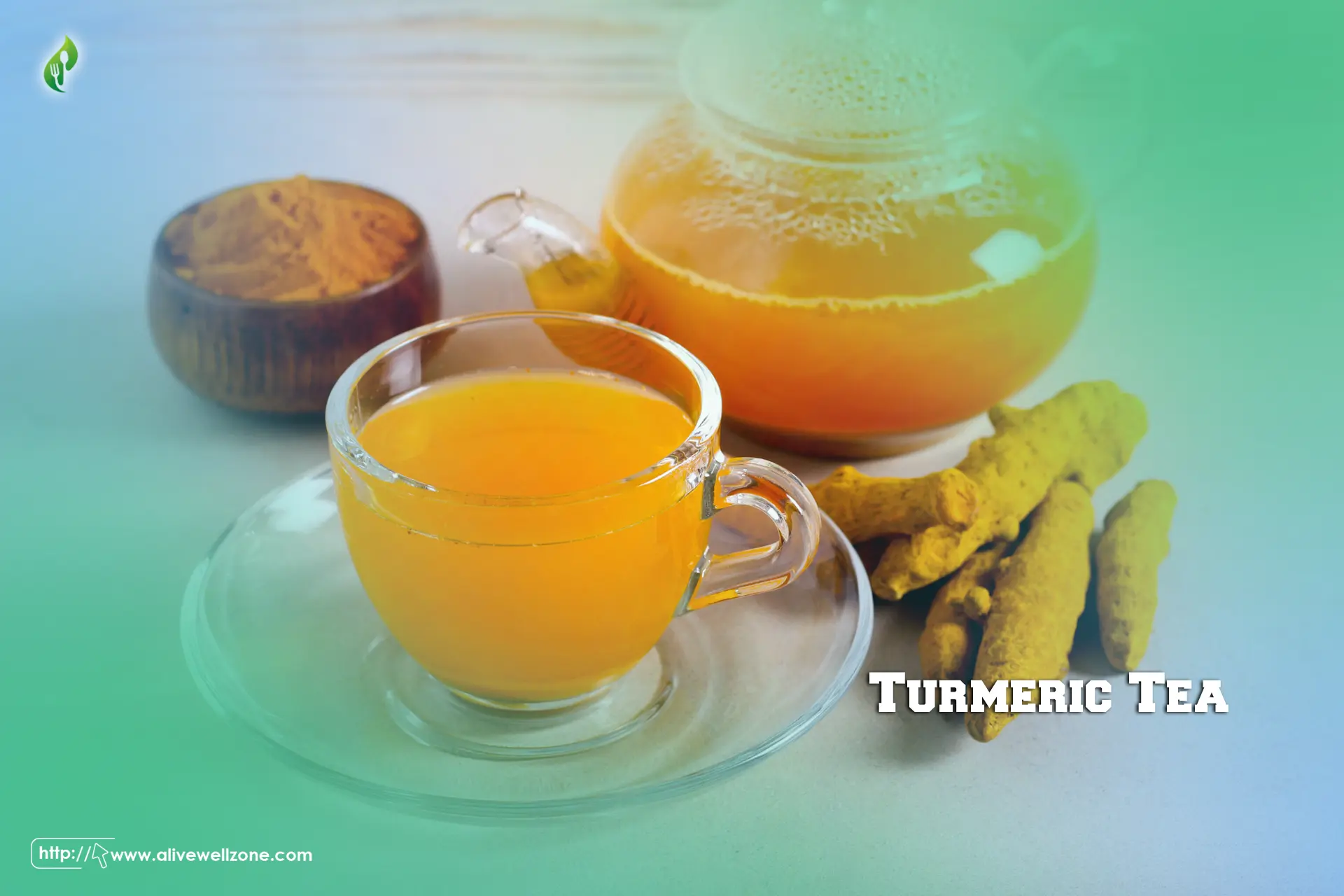
Benefits:
- Some studies show that taking 400 mg of curcumin, the main part of turmeric, might work as well as acetaminophen for arthritis pain.
- Curcumin might also help treat and stop chronic inflammation.
- Turmeric’s antioxidants could help protect brain cells from damage, improve mood, and manage depression and Alzheimer’s.
23. Cranberry Herbal Tea
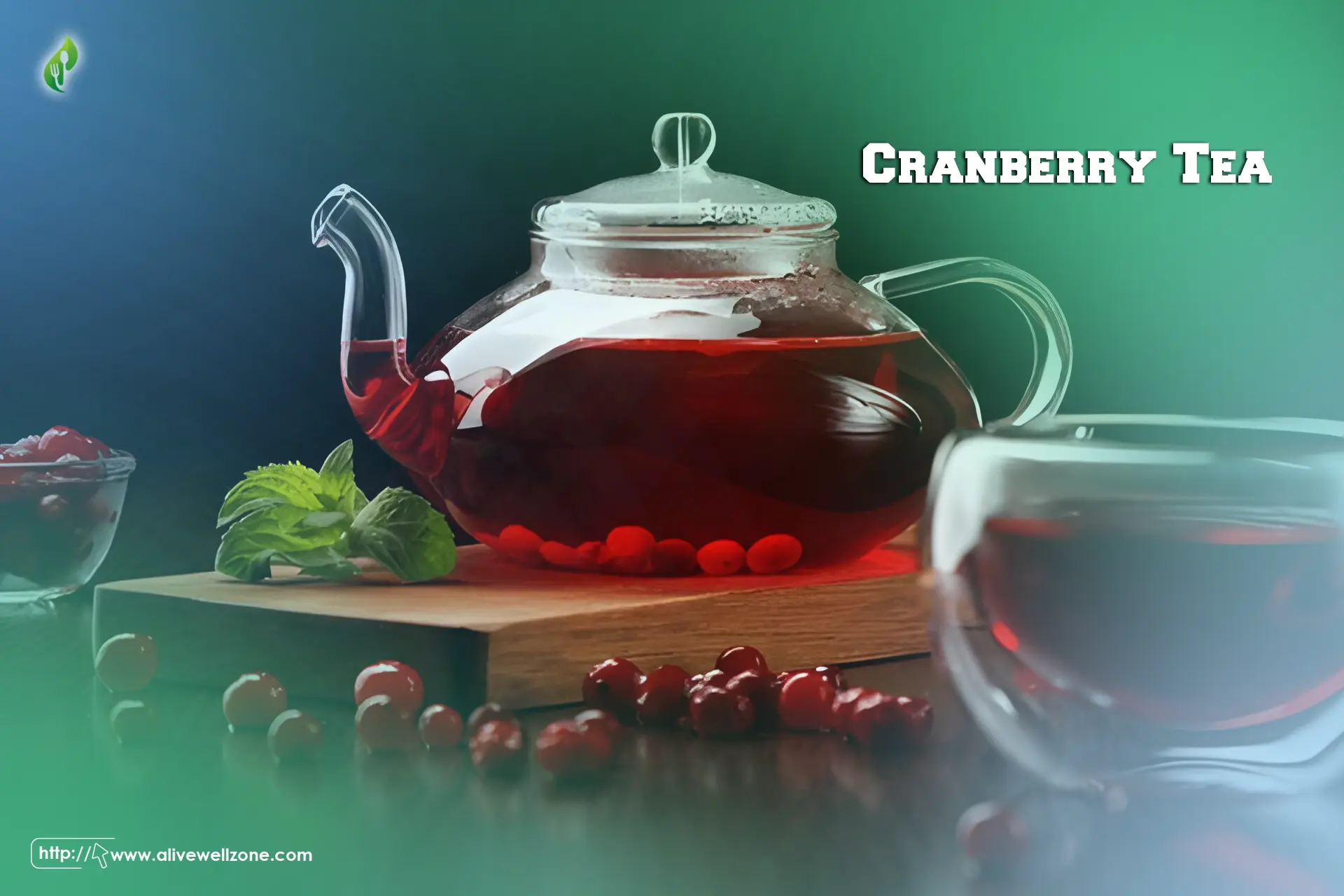
Flavor: Tart, tangy with a bit acid taste
You can mix it with: Honey or sugar.
Benefits:
- Cranberry tea has lots of vitamins and minerals like Vitamin C, K, and E that are good for you.
- It can help clean out your body and get rid of bad bacteria in your urinary tract, which can prevent or cure urinary tract infections.
- Cranberry tea is also a natural antiseptic that can stop bacteria from growing in your mouth and help prevent gum disease.
24. Marshmallow Root Herbal Tea
Flavor: Minty-ish hint
You can mix it with: Honey or sugar.
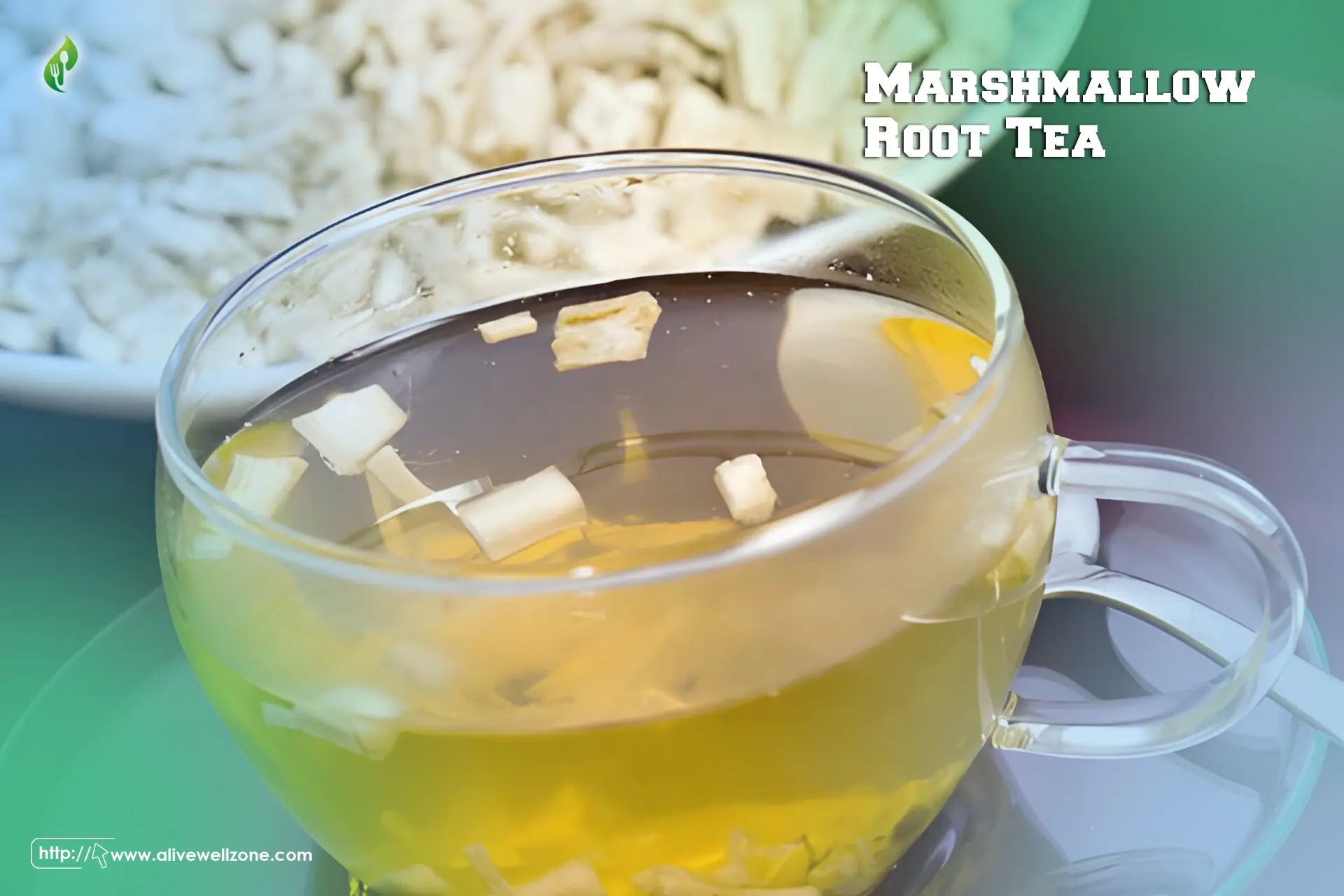
Benefits:
- Marshmallow root has antibacterial and immune-boosting properties that can kill certain types of bacteria and help your body fight infection. It can also help wounds heal faster.
- It also has protective and antioxidant properties that can help keep your cells healthy, which is good for your skin and hair.
- Finally, marshmallow root’s diuretic and anti-inflammatory properties can help reduce edema (water retention) by removing excess water and sodium from your body.
The Best Herbal Teas During Pregnancy
Herbal teas are typically seen as safe and have a long history of use. Still, limiting intake to two cups daily during pregnancy is recommended.
Now, here is the best list of herbal teas during pregnancy —
- Chamomile Tea: Drinking chamomile tea in late pregnancy might help start labor.
- Ginger Tea: Ginger tea is helpful for easing uterine cramps, especially in the first trimester.
- Raspberry Leaf Tea: People think this tea can strengthen your uterus, potentially helping contractions and reducing the risk of hemorrhage.
Before drinking any of these teas, please talk to your doctor first.
list of herbal teas to avoid during pregnancy
Herbal teas are often considered natural and calming, but some can be harmful during pregnancy and breastfeeding. So, you must speak with your doctor or midwife before drinking herbal teas.
That’s because some ingredients may not be safe for you or your baby. Here is a list of all herbal teas that are often advised to avoid —
Parsley Herbal Tea
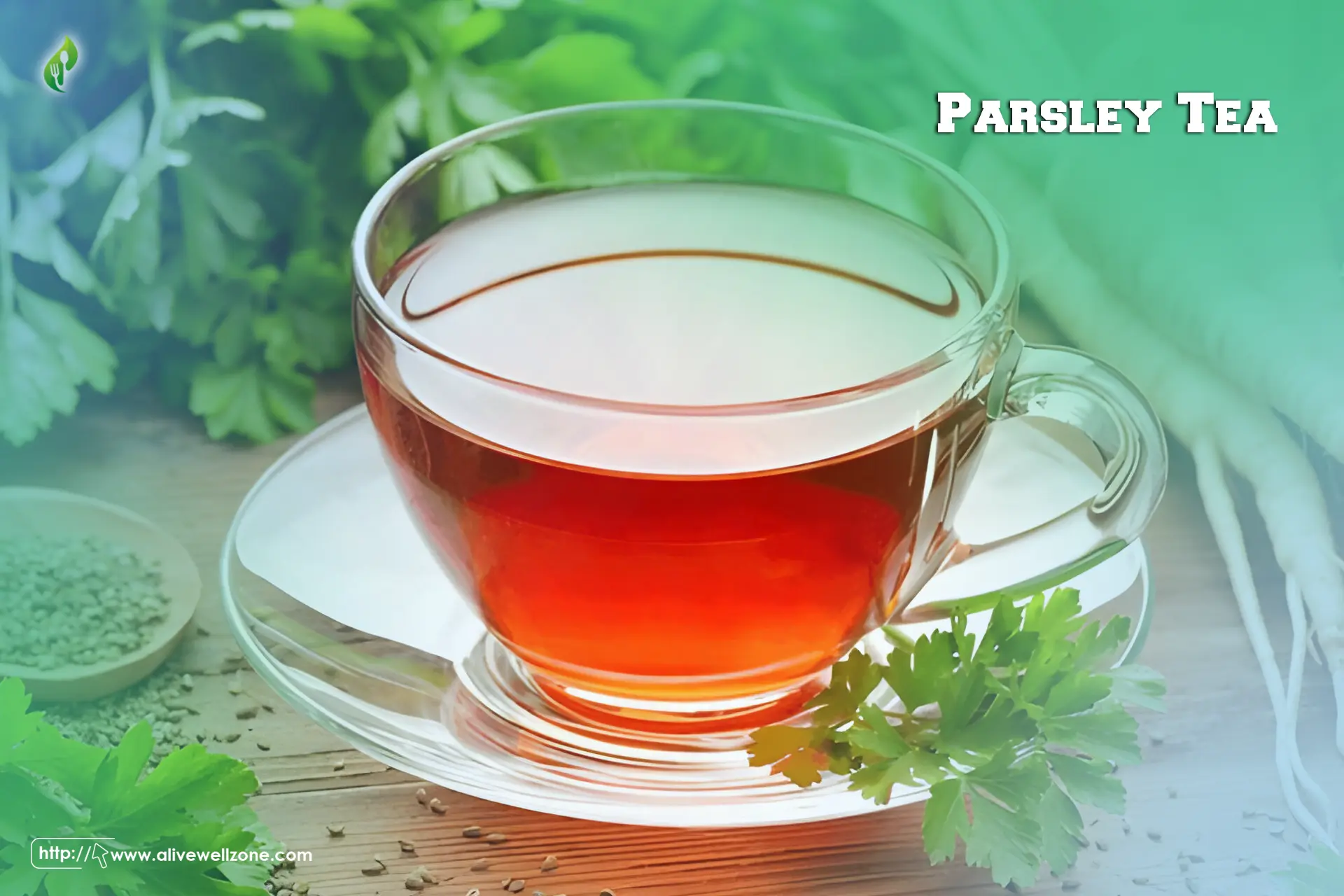
Parsley has a compound called apiol, which has long been used to induce menstruation. This same compound can trigger uterine contractions and may raise the risk of miscarriage or early labor.
It’s especially true when you consume it in larger amounts.
Sage Tea
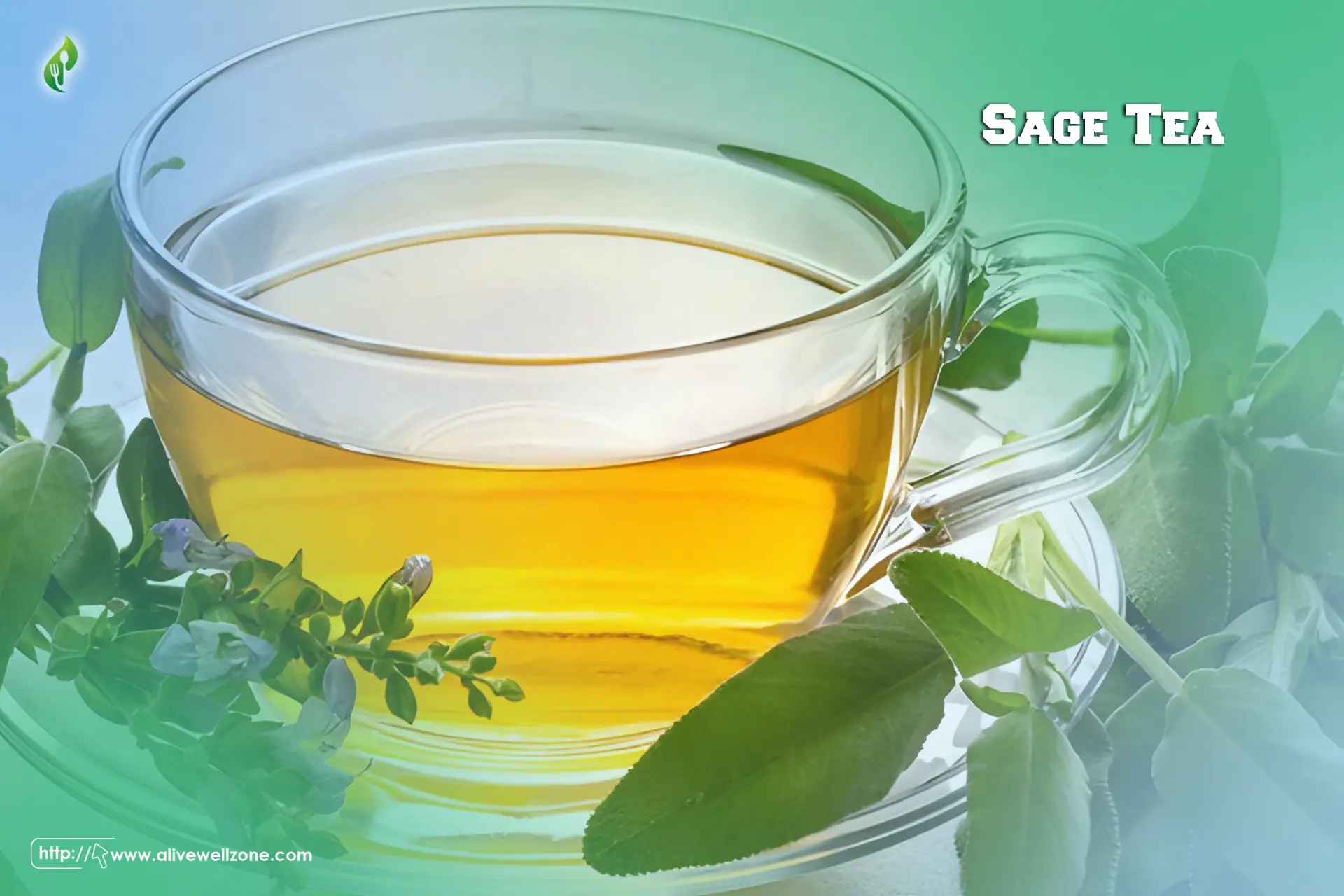
Sage contains thujone, a substance that can also cause uterine contractions. Drinking sage tea in high amounts may increase the chances of miscarriage or preterm labor. It’s best to avoid sage tea during pregnancy.
Important Reminder: Teas are considered safe overall. However, you must consume it after discussing it with your doctor. See, an individual’s response to herbs can vary, and certain amounts can pose risks.
For more detailed advice, you can visit resources like the American Pregnancy Association or consult your healthcare provider.
Final Words
In this list of herbal teas, we’ve explored a range of teas that offer unique health benefits—from chamomile for sleep to ginger for nausea. Herbal teas can improve digestion, reduce stress, support heart health, and more!
Some, like raspberry leaf tea, are safe during pregnancy, while others, such as parsley tea, should be avoided. Whenever you enjoy herbal tea, be sure to choose those that suit your needs specifically.
Important Reminder:
Even teas considered safe should be consumed after discussing them with your doctor, as individual responses to herbs can vary, and certain amounts can pose risks.
For more detailed advice, you can visit resources like the American Pregnancy Association or consult your healthcare provider.

